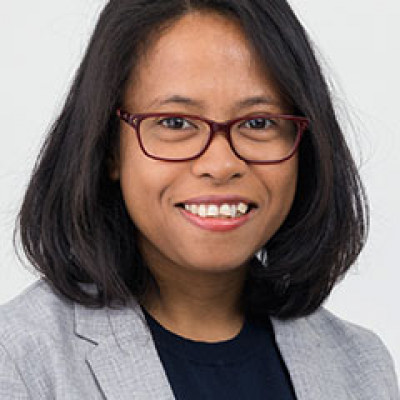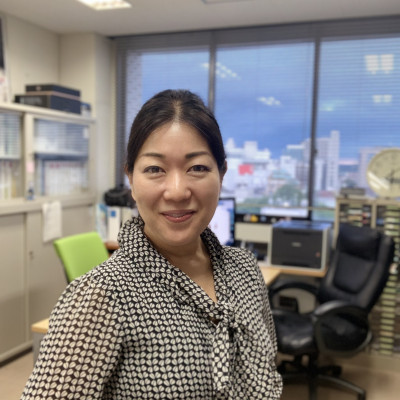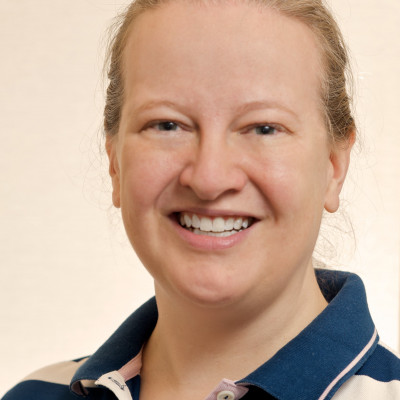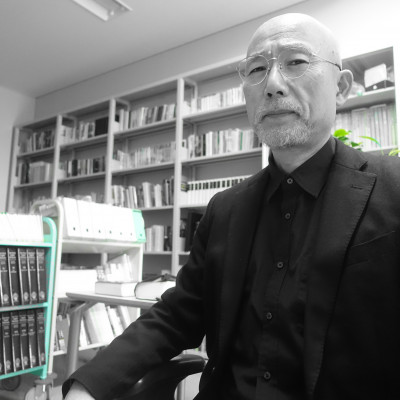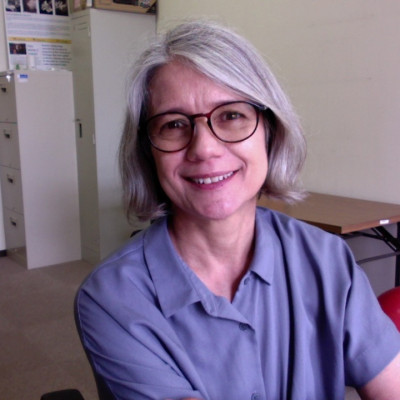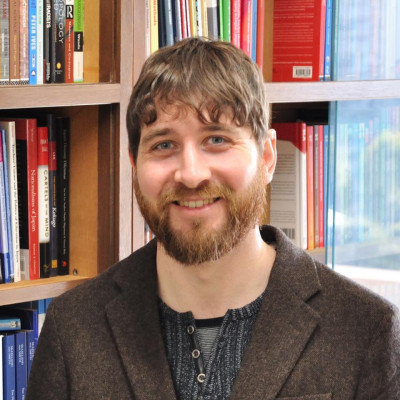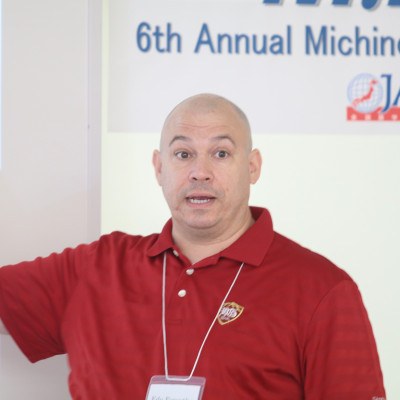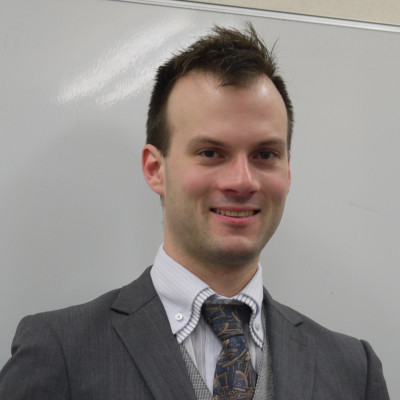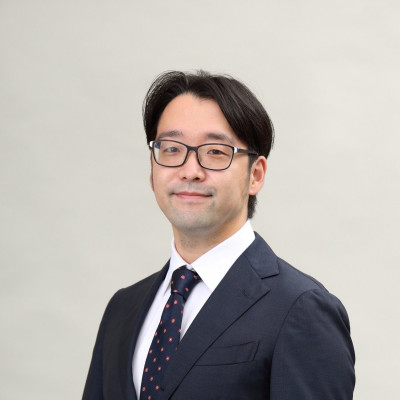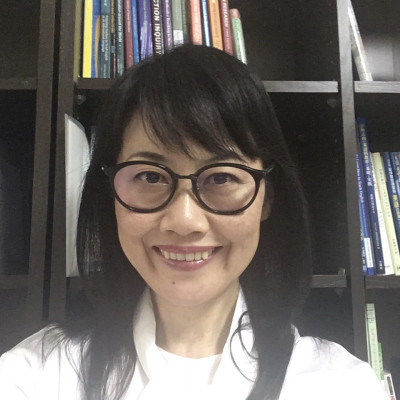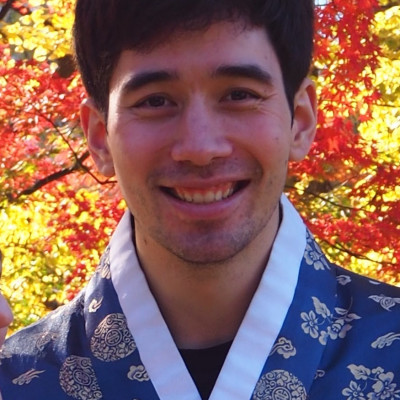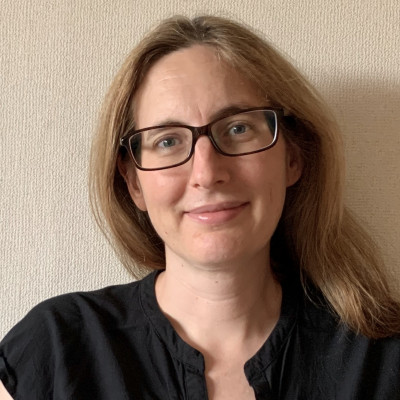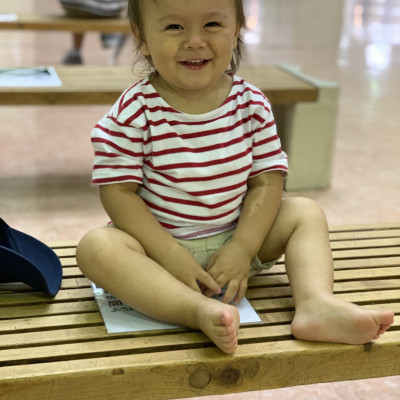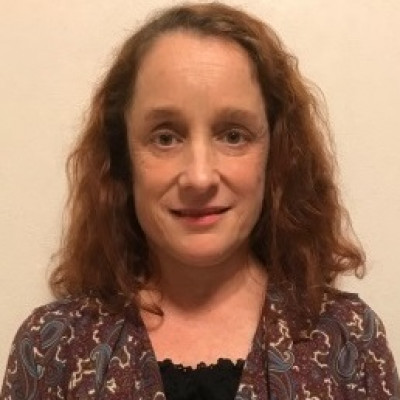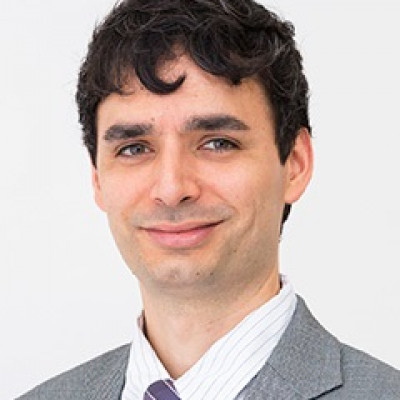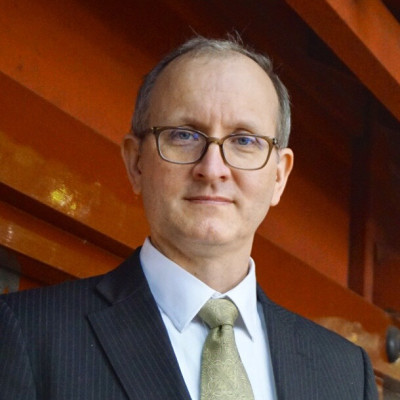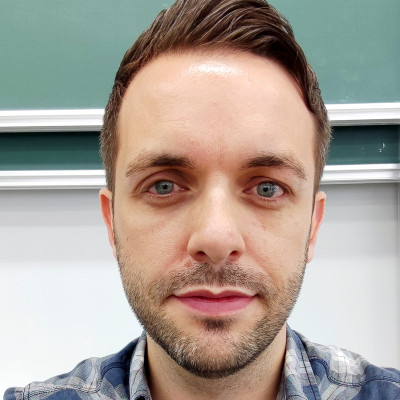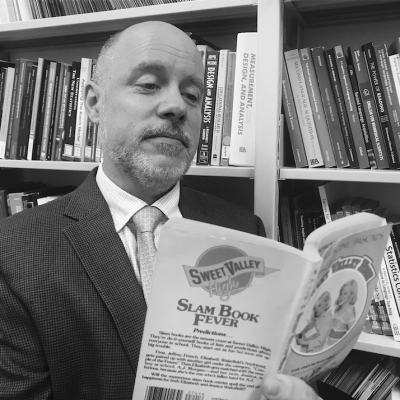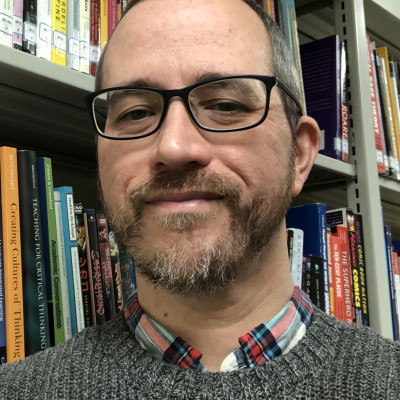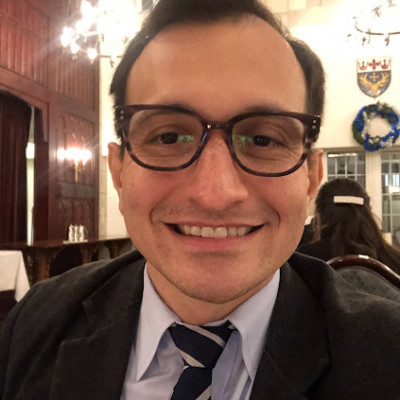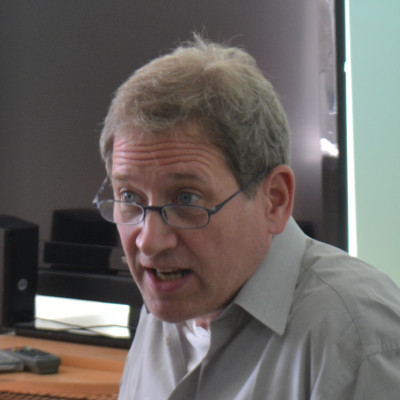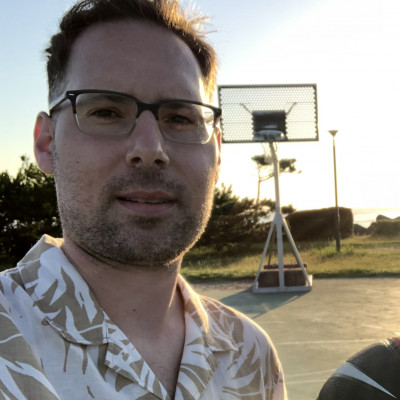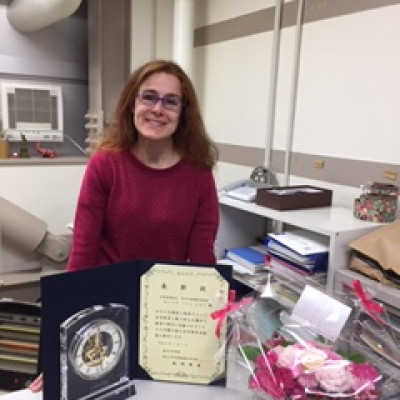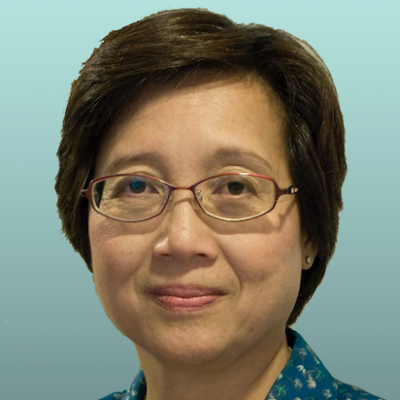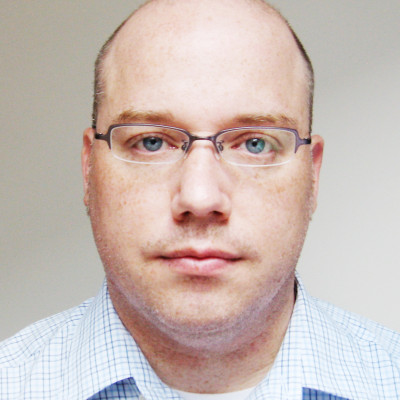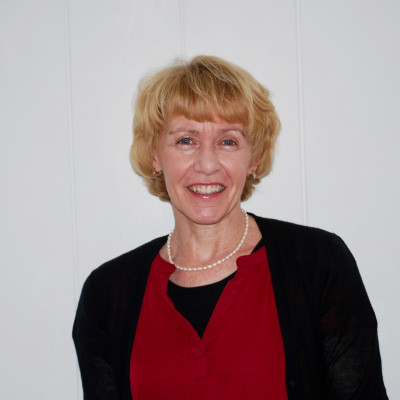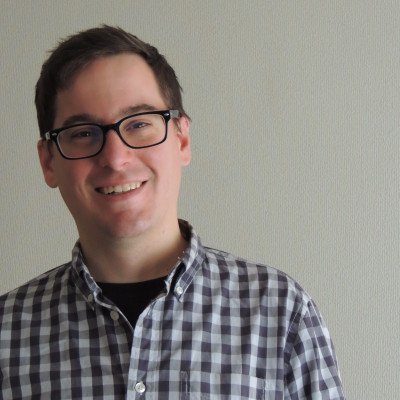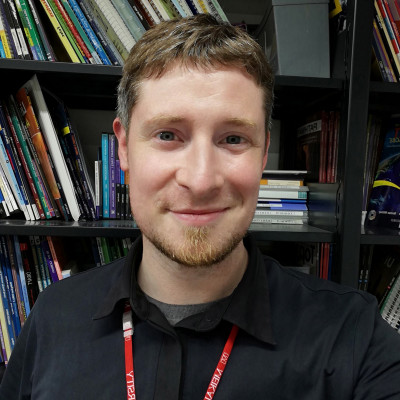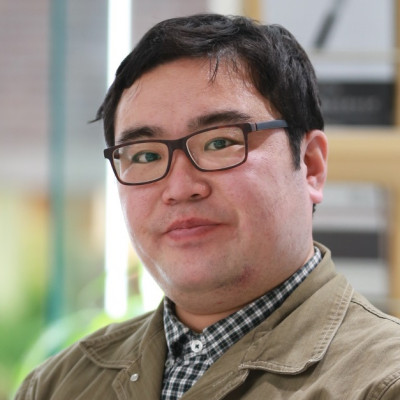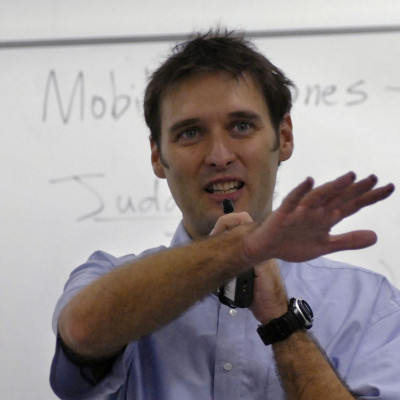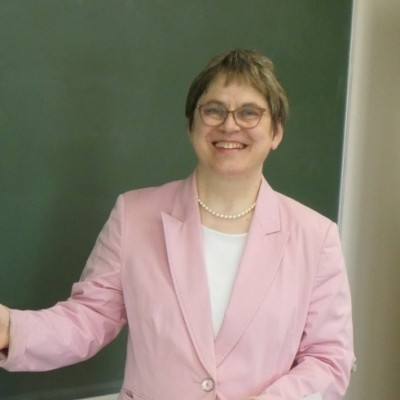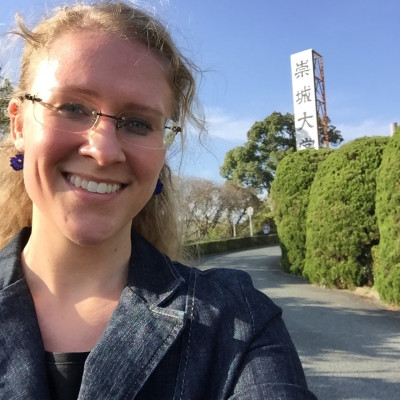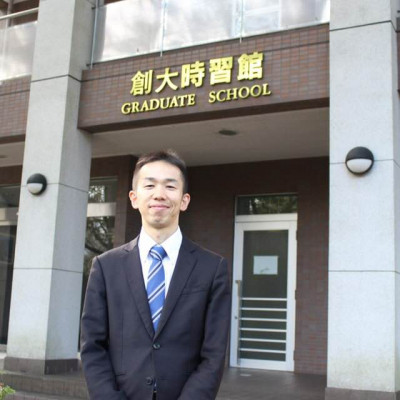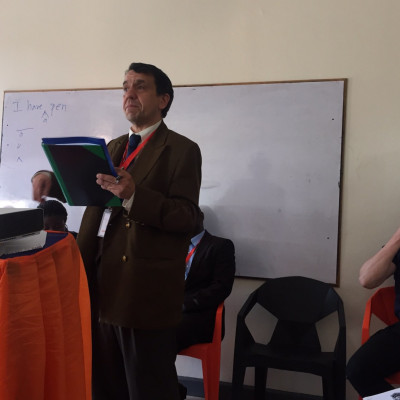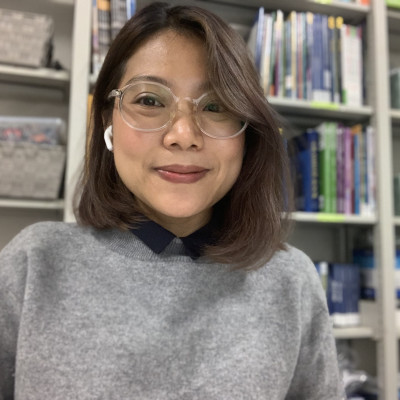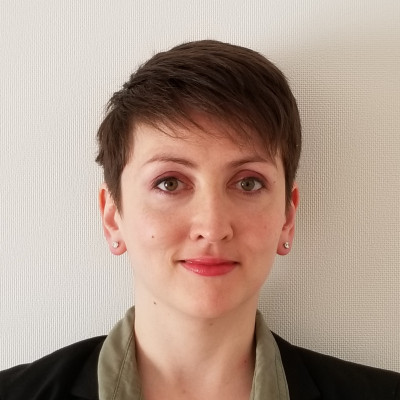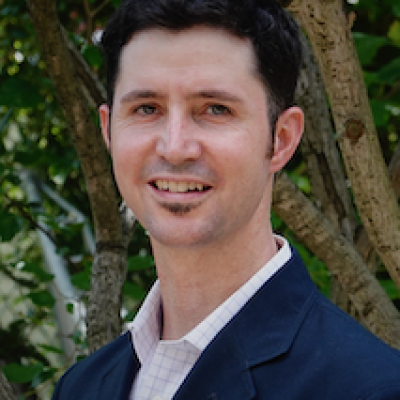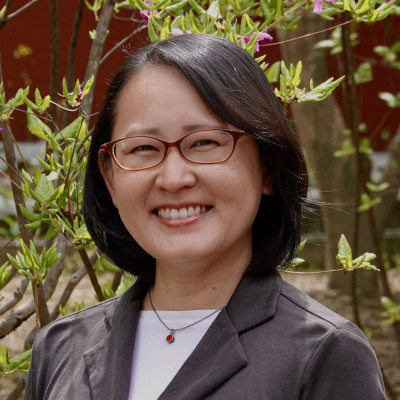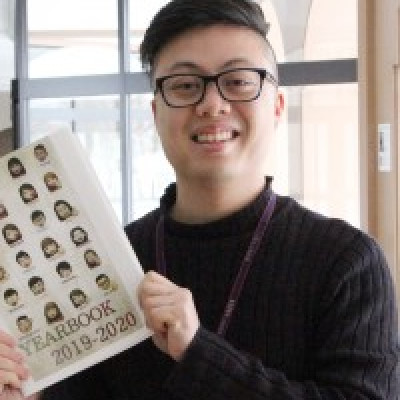Sessions / College and University Education
Cancelled The critical role of the teacher in the Self-Directed Learning (SDL) class #2915
Teachers and students have pulled through two years of online learning, gaining new information and technological (ICT) skills, studying self-directed learning skills, and demonstrating an adaptability to sudden and unexpected change. When our post-pandemic world finally arrives, how will we have changed? Dewaele and Mercer (2018) examined teacher attitudes and the necessity of a high level of emotional intelligence (EI) and self-efficacy to connect with students. This human connection between teacher and student is critical in all modes of education, face-to-face, online, blended, hybrid, or hyflex. Martin’s (2013) research on student adaptability to uncertainty and novelty is useful in helping teachers guide, advise, coach, challenge, and believe in students. In this presentation, the presenters reflect on various self-directed learning (SDL) courses they have taught in the past two years and re-consider the indispensable role of the teacher in fostering new skills in our students to learn without us. Data from open-ended and multiple-choice questionnaires, interviews, and actual work from first- through third-year students are used in this interpretative evaluation of the teacher's role and influence in the SDL classroom. The presentation will conclude with suggestions for SDL teachers.
Cancelled Embedding Synchronous Formative Assessment in the Virtual Classroom #2958
Moving to a virtual classroom impedes many of the formative assessment strategies that drive an educator’s classroom practices. There is added difficulty in even the simplest classroom monitoring tasks, not to mention the numerous course corrections that are often needed to enable a successful lesson. Many of the coping systems off only a rudimentary substitute for the access to individual student work and collaborative activities that in-person classroom interaction provides. With well-designed tasks and powerful learning management technology, we may be able to gain back much of that access. This presentation will present specific classroom applications of the Microsoft OneNote platform (in combination with Teams) that can provide guidance to create student-centered learning in a virtual environment. It will discuss (1) providing ongoing synchronous feedback to work in progress, (2) creating or re-directing tasks in response to immediately changing student needs, (3) gaining real time access to individual student notebooks, (4) evaluating individual contributions to collaborative tasks. Although these practices and strategies have a profound benefit for the virtual classroom, their use can greatly magnify an educator’s understanding of their student’s needs in standard classrooms as well.
Cancelled Professional learning for Hong Kong language teachers: Collaborative mode #2969
Most in-service teachers in Hong Kong schools receive their training through part-time short courses, in which lectures are the major training mode. Traditional approaches that focus on short-term direct transmission to professional development are increasingly regarded as relatively ineffective. This study aims to use a collaborative mode of training for in-service language teachers of special schools for students with intellectual disabilities. Learning communities were organized with the goal of providing participants with a platform through which it is possible to conduct an interactive exchange of ideas and expertise, mutually addressing the issues pertaining to children with language problems. Twelve learning communities were organized. Participants included four educators and 31 expert teachers as trainers, and 101 in-service teachers as trainees. A follow-up survey was conducted to collect information for the evaluation of the effectiveness of the programme. Significant responses were received from trainees as the learned skills and knowledge could be applied to their own schools.
Cancelled Goodwill or wind chill? Why is gaining insight into school ethos important? #2981
Institutional evaluation, a requirement to improve the quality and effectiveness of teaching, is carried out through the introduction of end-of-semester student evaluation of teaching. Is this sufficient? The “ethos” of an educational institution is the bedrock of all that takes place within a school but which often get bypassed in formal evaluations of quality and standards. While difficult to define, a school’s ethos can be described in terms of first impressions, the “feel” of the environment, and is composed of values and beliefs, attitudes, relationships. Many studies of the use of end of semester evaluation show that students respond by how they feel on the day of evaluation which is subject to extraneous variables. What are student evaluations influenced by? What is the everyday reality inside an institution? What values do students suggest within an institution? This presentation examines in more depth the importance of measuring a school’s ethos, shows the results from 250 questionnaire respondents, and offers some suggestions for improving the tertiary learning environment.
Cancelled A Critical Review of Design Features of LMOOCs #2739
There has been an exponential growth in Language Massive Open Online Courses (LMOOCs) in the past decade. LMOOCs have also become an emergent and topical area of research in CALL, in particular, vis-a-vis learners’ perceptions and experiences. However, not much attention has been paid to analysing the features of LMOOCs. We argue that a systematic investigation of LMOOC design features is vital, especially in light of recent criticisms by some CALL and language education scholars regarding the incompatibility between LMOOC designs and language teaching and learning theories and methodologies. This systematic review, which employs Hall’s (2013) framework of web-based instruction, addresses this gap by analysing instructional and assessment features of 100 LMOOCs on edX and Coursera. The synthesised findings suggest three strengths of LMOOCs: Most LMOOCs are introductory, suitable for beginning language learners (directionality). Most are easy to navigate because of their consistency in format and features. And most employ a range of multimodal instructional materials (multimodality). Three limitations are also identified: There are few opportunities for instructor-learner and learner-learner interaction (interactivity) and learner-centred, formative assessments (accountability). Besides, LMOOCs are designed with a prescribed learning sequence without addressing individual learner differences (adaptability). Based on our analysis, practical suggestions for LMOOC developers are discussed.
Benefits of using Language Learning Histories (LLHs) in teacher training #2975
Successful language learners need to learn beyond the classroom (Richards, 2015). These contexts enable learners to develop and exert their learner autonomy, as they decide what and how to learn. This presentation focuses on experiences with two Malagasy student teachers co-authoring a paper in which they tell their English language learning histories (LLH) beyond the classroom. Beyond the classroom, every learner has their own ways of learning, which may depend on their learning contexts and their motivation and interests. Through writing LLH, the student teachers realized how their interests constantly triggered their motivation to create opportunities to learn outside the classroom, a context where support is scarce. They also became aware of the disconnection between in-class and out-of-class learning content. These experiences helped them reflect on their future practice and how they would like to implement classes. Through the process of writing experiential narratives in the paper, we were able to make some significant insights on the potential benefits of the use of LLH in language learning and teacher training. Accordingly, participants will leave the presentation with a deeper understanding of learner experience and autonomy that can help them in developing practices to facilitate language learning beyond the classroom.
Reverse Engineered: Modeling cross-cultural pragmatics with TOEFL iBT tasks #2853
The TOEFL iBT test is designed to measure the likelihood of academic success in English-medium universities attended by non-native English speakers. In order to do well on the test, an understanding of academic vocabulary is important, but so too is a grasp of non-academic vocabulary that is useful in student life. This “college knowledge” is tested in the listening and speaking sections of the TOEFL iBT. Test-takers are asked to demonstrate their understanding of conversations between students and professors, students and university staff such as a librarian, registrar, or academic advisor, and conversations among students. By utilizing TOEFL iBT practice materials and their accompanying scripts, these texts can be reverse engineered to model , instruct, and improve our students’ lexical and cross-cultural pragmatic awareness. This workshop will demonstrate how materials can be exploited to build up useful vocabulary for study abroad (dorm, GPA, transcript, etc.), improve situational awareness through reading, listening, and role-play, and ultimately build up students’ confidence so that they have a degree of “college knowledge” before they set foot on a campus far from home.
Comparing the online and paper-based versions of the TOEIC L&R #2893
Shōzan University (a pseudonym) uses the Computerized Assessment System for English Communication (CASEC) for placement. Students complete the CASEC at home in late March, then the TOEIC Listening & Reading (L&R) a few weeks later once classes have begun. Two cohorts, 2018 and 2019, completed a paper-based version of the TOEIC L&R; however, two cohorts, 2020 and 2021, completed a novel online version of the TOEIC L&R, which reportedly results in similar scores as the conventional paper-based TOEIC L&R (IIBC, 2020). Author (2020) revealed that all cohorts had similar CASEC scores; however, TOEIC L&R scores from the online version were significantly higher than from the paper-based test. Author (2020) also reported on a sub-group (n = 57) who completed both versions of the TOEIC L&R, with online test scores being significantly higher than the conventional paper-based scores. However, the former was completed without proctors. The current presentation will report on a study from February 2022. Participants (n = 80) will complete the two different versions of the TOEIC L&R with participants randomly assigned to two groups (i.e., paper-online or online-paper). Both groups will complete both tests under supervision.
Developing an in-house corpus and high-frequency word list for science majors #2854
This reports on a work-in-progress of the development of an in-house corpus and high-frequency word list of the corpus for a Science and Engineering university in Japan. Students read scientific articles as part of their required English courses. However, in an informal survey, while some students were positive about the prospects of reading specialized academic articles in English, others felt that it would be too challenging. In order to bridge the difficulty gap, an in-house corpus of articles recommended by the science faculty and a high-frequency word list of the corpus are being developed. Interviews and surveys will be conducted with selected members of the science department to understand the nature of articles written in English that these members would recommend for graduate students. The articles will be gathered to create a corpus of one million words, and processed for high-frequency words using AntConc (Version 4.0.2) (Anthony, 2021) a free online vocabulary profiling software. These will be compared against the new academic word list and further analysed for specialized words. The findings will help to construct an informative vocabulary list for the students in graduate school, and in the future, this could be further refined for undergraduate students.
Building Zettelkastens for SLA research and the classroom #2912
In this presentation, classroom applications of the Zettelkasten method will be explored. A Zettelkasten is a personal knowledge management system in which notes are created and assigned to ad hoc categories as they emerge. By creating note slips, either in digital or analog form and subsequently creating links among them, a framework of knowledge can be replicated. By relating ideas to each other, students replicate a train of thought. Zettelkastens provide a place to store and, more importantly, organize knowledge, thereby increasing the quality and quantity of learning. Though this system was first used to develop research ideas, it also has applications in the foreign language classroom to serve as a framework in which the learners organize and consolidate what they have learned. In this talk, the presenter will first provide an overview of the literature on Zettelkastens and then demonstrate how to implement this system and apply it to research and, more importantly, the classroom. Finally, learners’ subjective feedback on the effectiveness of this classroom practice will be addressed.
Teaching Self-study: Ideas to improve Self-study Habits #2843
The presenter will share ideas for guiding students from ‘I don’t know what to do’ to ‘now I know what to do’. The ideas include: setting goals, mental preparation for daily self-study activities, Learning Cycle, and note-taking strategies. English as it is taught in classrooms often focuses on testing students rather than on having them acquire learning skills. Learning strategies should be taught explicitly to enable our students to acquire learning skills. Learning Cycle, Active Recall, and study habits are three theoretical paradigms the presenter encountered in recent years. Learning takes place when students have opportunities to repeat the content. One effective strategy is using the Learning Cycle. The famous Feynman Learning Technique is one of the variations of the Learning Cycle. Active Recall can be used in connection with the Learning Cycle. Simply said, Active Recall is an act of self-questioning. By using Learning Cycle with Active Recall, the content can be repeatedly reviewed by students. Next, the presenter will share his collection of note-taking styles including some unique note-taking styles. At the end of the presentation, the results of the presenter’s own action research in this area will be shared.
Setting up a successful COIL project #2858
Collaborative Online International Learning (COIL) partnerships provide faculty members with opportunities to collaborate with colleagues at institutions in different countries, and allow students to learn in a globally networked classroom in the form of virtual mobility. A COIL project begins with finding a teaching partner at a university in another country, and then together developing a six- to-eight week learning experience for both their classes in which all students learn, exchange, and interact with each other without ever leaving their own country. The thought of developing and embedding a successful international online learning experience with students and the professors themselves at different institutions may sound exciting, but it can also be very overwhelming. With so many variables at play - technological access, language differences, time zones, and cultural and pedagogical differences - faculty may not know where or how to begin. The two presenters, professors from Canada and Japan, will share about their experience collaborating on a COIL project for their students, who were in different majors and had different levels of English. Topics will include initiating a partnership, setting feasible goals and objectives together, and troubleshooting when best-laid plans do not always work out.
Language Learning COILs: A Pilot Study #2865
Collaborative Online International Learning (COIL) and Language Learning COILs (LLCs) provide opportunities for students to communicate with students from other countries learning the same L2, to communicate with native speakers of the L2, and to develop cultural awareness and understanding. The COVID-19 pandemic has hastened awareness and understanding of how important and useful COIL might be in education. This presentation will report on the outcomes of a LLC held in the fall of 2021 between a English Communication class for first year Japanese university students and a 2nd year Japanese language class at a college in the United States. After a brief outline of the LLC’s content and procedure, I will review the results of a post-LCC questionnaire given to the Japanese students. Results of this pilot study show that students had positive responses to the LCC, and indicated increases in motivation to study abroad, awareness of cultural differences between Japanese and American university students, and participation in regular English classes. The data related to perceived language ability and confidence in using the language is inconclusive and merits further investigation. This presentation might be of interest to any instructor interested in Language Learning COILs.
Exploring systematicity of spatial phrasal verb constructions for L2 learners of English #2874
This ongoing study investigates the systematicity and teachability of difficult spatial phrasal verb constructions (PVCs) for second language (L2) learners of English. Cognitive semantic research (e.g., Evans & Tyler, 2005; Mahpeykar, 2014; Shintani, Mori & Ohmori, 2016; Bong, 2019; Tyler, Jan, Mahpeykar, & Tullock, 2020) indicates that systematicity and teachability of PVCs have been a long-term focus of language teachers and applied linguistics, and continues to be of particular interest. For this current study, 41 1st-year university students in an English program in Japan completed a survey eliciting a range of difficult PVC usages. Analysis of the data reveals that correlations of participants’ first language (L1), linguistic complexity, PVC difficulty, prototypical and polysemous categorical properties demonstrate systematic features that can influence the teachability of English PVCs for L2 learners of English. The implications of this research on the systematicity of spatial PVCs could lead to enhanced teachability and thus may have an effect on L2 pedagogical practices.
Perspectives on how to support learners with special educational needs #2710
While accommodation for students with special educational needs (SEN) is built into mainstream education and teacher training courses, and considerable research has been carried out regarding SEN students' language learning, much less attention is given to the professional development of language teachers who seek to provide inclusive and adaptive learning environments for SEN students. This presentation reports on a case study carried out among five instructors who taught students with SEN in an academic discussion course at a Japanese university. These teachers were considered representative of university-level language teaching practitioners in terms of qualifications, experience, and teacher education, including a lack of official training regarding working with SEN learners. The study used reflexive writing by the teachers to uncover a set of developing perspectives on, and diverse approaches to, supporting SEN students. The results reveal two areas that are potentially instructive for both teachers and academic managers of professional development programs. First, they give some insight into the extent to which pre-service training programs are currently preparing teachers to help learners with special educational needs. Second, they outline a variety of ways in which teachers can proactively adjust their practice in order to better create equitable and inclusive classrooms.
Paper to pixels: A decade of EFL journal development #2829
Journal writing is a recognized and much-used tool in language teaching. In the language teaching classroom, it can address multiple needs: target language habituation, student interaction in the target language, provision of authentic materials, facilitation of both peer and instructor review, multimedia communication, multiple study skill integrations, enhancing student motivation, and many more. Journaling has been a component of the first-year courses I teach for over a decade and has been developed and refined through several iterations. This presentation has three distinct foci. First is the succinct elaboration of the language teaching needs the journaling program seeks to meet, followed by a description of the development of this program over time and the reasons why that development was necessary. Finally, there is a practical demonstration of the various modes, methods, and tools in the current OneNote-based journaling system, illustrating how it can be used, and be useful, for both students and educators.
High-frequency multi-word sequences and learners’ speech rate and listening #2830
The automation of multi-word sequences (MWSs) reduces the cognitive load required for fluent speech (Wood, 2010). However, this poses challenges for L2 learners because considerable phonological reduction occurs in high-frequency MWSs (Bybee, 2002). This study looks at whether attending to reductions during focused listening and speaking practice of the highest-frequency MWSs could help improve students’ spoken fluency and listening perception (accuracy). Over the course of 10 weeks, both a control group (N=17) and an experimental group (N=16) of Japanese L1 English language users studied 10 common bigram collocations each week, while the experimental group additionally studied sets of 10 phonologically reduced high-frequency trigrams. Both groups also described three picture stories that contained the target collocations in class and completed focused listening homework each week. Participants were tested for 1) gains in spoken fluency through both a free speaking and storytelling task and 2) ability to accurately complete a dictation listening task containing target MWSs. This presentation will discuss the study and results, which found a large advantage for the experimental group in spoken storytelling fluency but no statistically significant difference in free speaking fluency and listening perception.
Cooperative board games for developing turn-taking in EFL discussions #2835
Effective turn-taking is vital for successful participation in group discussions. In Japanese EFL contexts, group discussion often exhibits turn-taking behavior that is markedly different from that of competent English speakers, often limited to each participant making a short speech and brief comments of agreement or disagreement. Turn-taking behavior is also a major component of the interaction in cooperative board games, which encourage group decision-making and often exhibit more varied forms of turn-taking. This presentation describes the use of cooperative board gameplay in the classroom as a training aid to develop learners' turn-taking skills. First, the presenter will explain the characteristics of cooperative board games from a TBLT perspective, including the range of speech acts contained within their gameplay. Then an analysis of student transcripts collected over one semester will be presented to illustrate changes in student turn-taking behavior in a variety of contexts. The changes explored include differences in turn lengths, speech act use, and turn-taking patterns of learners. The presentation will conclude with some suggestions for using cooperative board games in the language classroom to maximize language use.
Filling Gaps in the English Curriculum with Self-Access Learning Initiatives #2838
Classroom-based language curricula are necessarily “one size fits all”, leading to potential gaps which self-access language learning can address through resources suited to individual learning goals. Moreover, centres can become social communities in which users learn from each other (Mynard, 2019). Through dialogue with learners and faculty, gaps in the English curriculum were identified and initiatives developed within our tight budgetary constraints. The questions that guided the development of our self-access centre were: 1. Why do many CEFR (pre-)A1 level learners rarely visit the teacher-run conversation lounge and what can be done to encourage their participation? 2. How can value be added for bicultural and “returnee” learners who are not well-served by required English classes? 3. What can be done to support the 10-15% of students in the English Department who choose to write their graduation thesis in English, considering their numbers are judged insufficient for a dedicated advanced academic writing class? Details will be provided of ongoing initiatives to encourage participation of lower-level students, involve bicultural and returnee students as active stakeholders, and provide writing support without a writing centre. In addition, presenters will invite ideas from the audience to address these common issues through autonomous learning.
Transforming rudimentary tasks through the use of authentic materials #2868
One of the most vital, yet challenging tasks of a language instructor is to create activities that offer a variety of real-world applications to help prepare students for life beyond their studies. Standard curricula, textbooks, and high-stakes tests are often rigid, with little room for creativity and relevant learning experiences. An increasing number of studies show that scaffolding authentic materials provides countless linguistic benefits, such as improved communicative competence (Berardo, 2006; Mishan, 2005), listening comprehension (Otte, 2006), exposure to unstructured language (Rogers & Medley, 1988), and non-linguistic advantages, such as motivation (Nuttall,1996) and enhanced cultural understanding (Little et al., 1989). This session will begin with an overview of the academic discussion revolving around the use of authentic materials in a foreign language classroom. Following this, the presenter will explore guidelines to consider when selecting authentic materials, and some simple, yet effective strategies for integration. In closing, the presenter will share some practical tasks that they have implemented in their Japanese university classes and offer insight into how it has impacted their students. The session will revolve around this question: How can educators exploit authentic materials to close the gap between the real world and the classroom environment?
Cancelled Teacher satisfaction during the COVID-19 pandemic #2873
Since March 2020, the COVID-19 pandemic and resulting emergency measures such as campus closures and sudden shifts to online learning have had numerous effects on how teachers perform their jobs, in particular challenges such as adapting to changes in social interaction and technology (Miller, Parrish, 2021). This study will present data from a survey of 202 Japan-based university instructors using Likert-scale items, open-ended items, and interview data collected at the end of the 2020/2021 academic year. The survey was part of a larger quantitative and qualitative cross-sectional study investigating teacher job satisfaction in Japan. The survey questions relate to overall job satisfaction before and during the pandemic and what aspects of the experience were positive or negative. Survey results indicated several areas of concern, such as isolation, anxiety, and frustration with technology, as well as suggested possible methods to cope with unexpected change and disruption in the education industry, through adaptive use of technology, continuous training, and accessing social networks. Participants will receive practical suggestions for improving their professional development drawn from the survey and the author's personal experience.
Teacher Perceptions of ADHD and ASD in the Japanese EFL Classroom #2698
Autism spectrum disorder (ASD) and attention-deficit/hyperactivity disorder (ADHD) are two frequently diagnosed learning differences which can seriously influence students’ L2 development. Although Japan has diagnosis rates comparable to other developed countries (NISE, 2016), teachers often lack training for these conditions. This is particularly true for EFL instructors, who are not necessarily trained or informed of learning differences. In Japan, reporting and communication of these conditions is generally scarce, yet MEXT maintains a policy of inclusion at all levels of education. Therefore, a clearer picture of the challenges facing EFL teachers is one step toward ensuring classroom praxis can meet the promise of inclusivity. A survey of EFL teachers in Japan was conducted to better understand issues around learning differences as ADHD and ASD in their classroom. The survey had three goals: to chart themes in EFL teachers’ perceptions of learners with ADHD and ASD; to chart adequacy of EFL teachers’ knowledge and training for learning differences; and to identify potential areas of need for better understanding how to make the EFL classroom more accessible. This presentation will present the results of the survey and a set of practical takeaways which EFL teachers might consider in furnishing accessibility in the classroom.
Developing a system for student self-evaluation in speaking classes #2717
A common classroom challenge is evaluating student oral production, particularly in classrooms where students speak in small groups as limitations of teacher and classroom lesson time make providing individualized feedback impractical. In this practically-oriented presentation, the presenters introduce a system developed to make lessons more student-centered, promote learner autonomy, and facilitate student reflection. The system enables students to self-evaluate their speaking through recording and transcribing their oral production using freely available online tools. The presenters describe the development process for the self-evaluation rubric. The rubric went through multiple iterations from one originally intended for teachers, which was unwieldy for students to use, to a simpler, more focused student-friendly rubric. As a result of this change to the class system, students could self-evaluate their production and solicit individualized feedback from instructors concerning self-selected topics of interest. The presenters also share student reflections and feedback. Specifically, students observed that focused self-assessment helped them better understand and implement the conversation strategies featured in the class textbook. As these techniques are compatible with online and face-to-face instruction, attendees will gain an understanding of how to implement similar strategies in their teaching without relying on the online technologies used.
Further Reflections on the Effects of Free Writing in an EFL Writing Class #2724
Japanese university students are often required to perform free writing activities in their English language classes in an attempt to encourage confidence in writing in English. Free writing activities are defined as “the act of writing quickly for a set time from ten to fifteen minutes, just putting down whatever is in the mind, without pausing and worrying about what words to use, and without going back to modify what has been written” (Li, 2007, p. 42). The authors have had their students do free writing activities throughout two years of English composition courses and analyzed the quantitative effects of such activities. In this presentation, the authors will explain the free writing activity tasks used, then provide quantitative data to show results in terms of the number of words written, and finally representative qualitative examples from the students’ reflection on their free writing experiences. This presentation will be an extension of the data presented at JALT2021. Attendees will come away with ideas for how to more effectively employ free writing in their university English language classes in a manner that will align with students’ ideas on free writing for self-improvement.
CLIL and Translanguaging in EAP classrooms #2836
A class of 3rd year Japanese university EFL students (n=26) were taught a subject called “Science and Society in English” that allowed them to utilize their prior knowledge from their majors in the EFL classroom. A CLIL-based syllabus incorporating translanguaging approaches was created to support students' use of L1 and L2 materials. Themes explored in the class covered the impact of science and technology on society, and its benefits/ hindrances . Following "Bloom's Revised Taxonomy 2001" as a learning progression guide, students were provided with opportunities to read and discuss topics related to their Science and Technology majors in their L1 and L2 to prepare to write a research paper and make a final presentation in English. This presentation will outline how Blooms Revised Taxonomy, CLIL and translanguaging approaches were incorporated in the classroom throughout the 15 week semester. It will outline the observed benefits to students’ comprehension of content and the specific language it requires through bringing their prior knowledge from their majors to the forefront. Findings indicated that allowing learners L1 in the L2 classroom increased students' levels of motivation and willingness to communicate, while developing their academic writing and presentation skills.
Using Technology to Teach English Communication for Repeaters #2837
Eight students (n=8) attending a required course called English Communication at one university in Japan were taught during fall AY2020 (i.e., from September 2020) after the instructor reviewed literature from January 2017 to August 2020 on teaching EFL learners who are repeating their courses. When class began in September, the instructor started teaching 15 sessions on Zoom with each session consisting of two 90-minute sessions on Zoom, and took notes after class based on class observation after each session. Based on a synthesis of literature review and notes based on observation, it became evident that (1) a semester-long twice a week 90-minute course based on having students make answers based on open-ended questions can elicit increasingly complex responses from students whose TOEIC scores range from 295 to 345 points in the target language; and (2) having students submit reflections at the end of each class can enable teachers to understand difficulties students are facing with developing their linguistic skills and encourage students to reflect on themselves for personal development. Details of literature review, open-ended questions, and notes based on observation will be presented to help the audience think about ideas that can be applied to their own classes.
Imagining anti-oppressive GCE EFL teaching theory & practice #2861
This presentation introduces the theorizations and specific anti-oppressive classroom practices developed in the 1st year of a 3-year Japanese-government funded project. The specific theory of anti-oppressive education introduced was developed by combining anti-oppressive theory and global citizenship education (GCE) theory for EFL classroom contexts in Japan. To build the theory, Andreotti’s (2011) theorizations are combined with terminology from Sensoy and DiAngelo (2017) to explain an anti-oppressive theory and practice, which not only uncovers the complexities and fluidity of societies, but also uncovers the systemic oppression that organizes them. Foundational terminology is explained to understand systemic oppression and constitutive subjectivities (Coloma, 2008), and this theory is used to explain several anti-oppressive teaching practices which promote self-reflexivity and go beyond inclusion. Anti-oppression teaching methods are shared, drawing on personal experiences in pre-service education. As a teacher-educator, the presenter explains the important task of teaching not only content, but also the realities of complex local and global social justice issues that impact the students’ future teaching careers. In this new COVID-19 era where injustices are magnified, these anti-oppressive practices encourage educators to go back to the basics to understand their role in systemic oppression, as well as their role in dismantling it.
Cancelled Induction program for high school students: Effectiveness and implications #2885
High school students are often anxious about their new university life and do not know what to expect in English classes at the tertiary level. Furthermore, students may feel apprehensive about classes that have to be conducted online due to the current COVID-19 situation. In order to address these concerns, an online English workshop was conducted once a week over a period of three weeks to help students improve their English communication skills and create opportunities for them to interact with the language center tutors. This presentation outlines the content and implementation process of the workshop. An online questionnaire was given to the participants (n=58) and tutors (n=4) to collect feedback after each session. 97.3% of the participants indicated that they were very satisfied and satisfied with the content of the workshop. 81.4% found the content manageable and 6.5% found it a little difficult. 90% of them stated they had gained the skills required to attend online classes. As for the tutors, the satisfaction level of their facilitation skills increased from 62.5% to 75%. The results also suggested that participants felt less anxious about their new college life after the workshop. The implications of this project will also be discussed.
Nurturing identity of empathy in a linguistically responsive course #2965
In an effort to develop disciplinary literacies students in tertiary-level learning contexts, there have been various pedagogical approaches to fostering the learning of both language and content (Marsh, 2002; Zappa-Hollman, 2018). One widely-accepted approach is content-and-language-integrated-learning (CLIL), pointing to the importance of nurturing discipline-specific literacies of students as apprentice scholars who can appropriately participate in the scholarly conversations and practices of a discipline (Airey, 2011). Further classroom-based research insights are needed to deepen our understanding of whether and how CLIL-based approach can contribute to students’ empowered identities as legitimate participants in academia. This presentation explores a coordinated project-based pedagogical effort by university educators in Canada aiming to develop the disciplinary literacies of international undergraduate students in a linguistically-responsive course. The presenter will draw on specific examples of how such a pedagogical effort informed by task-based, functional approaches to language learning may create an educational space cultivating empowered identities of students. The presentation will illustrate how students were invited to position themselves and others as producers of meaning with a sense of affective, cognitive, and communicative empathy while exploring the inextricable relationship between language and disciplinary knowledge. The presentation closes with pedagogical insights into the importance of empathy-fostering classroom discourse.
Understanding the Process of Generating Text in Academic Writing - A Student Case Study #2742
Mastering academic writing is one of the biggest challenges for tertiary level students. Whilst classroom instruction may provide guidance in how to properly construct an essay or research paper, the actual process of writing is one that many students find disorientating. Likewise, once submitted, educators are often left bewildered as to how their teachings so comprehensively failed to be translated into a competent piece of writing. The problem for both parties is that in many cases the most significant moment of the writing process is one the students have received no direction on -- how to actually move between ideas and text generation. Collins and Gentner (1980) claimed it was important to separate idea production from text production with the key component focussed on identifying movement between the ‘content space’ and the ‘rhetorical space’. This applies at both a sentence-construction and paragraph-assembly level. Through the use of Think Aloud Protocols, this presentation will look at how a freshman student navigates moving between her ideas and converting that into text and what writing instructors can learn from this crucial moment of the writing process.
Teaching English to hearing-impaired students: a practical approach #3023
This workshop focuses on identifying the issues and challenges of teaching English to Japanese university students with hearing impairments and aims to raise awareness among educators of the particular needs that may require accommodation, and what strategies can be employed to make the language more accessible. Although the number of our students with this disability may be small, it is important to consider in advance what can be done to provide a supportive classroom, including assessing the level of disability and students’ previous educational background. This may test the skills of teachers who have not received specialist training. The background to the teaching of students with special needs in Japan will be presented and approaches will be suggested that could be taken to provide an environment in which every member of the class can actively engage. The presenter will share experiences in both face-to-face and online classes, summarize published research on the topic, explain the system a private science college has established to assist all learners with special needs, and share a small number of basic BSL (British Sign Language) greetings. Contributions from other educators with experience in this area will be warmly welcomed.
Comparing Zoom and VR lessons in Language Education #2833
A comparative study was carried out from April 2021 to January 2022 to determine the effectiveness of interaction using only VR or interaction on the ZOOM platform with young adults from overseas. Both groups took the pre-and-post-OPIc speaking tests and questionnaires. The first VR group (n=60) took part in the 45-minute VR lesson in groups of five or more twice a week during two semesters. Feedback indicated that students’ anxiety levels decreased through the VR lessons, and they gained more confidence in speaking English. There was no significant difference in improvements between pre and post-OPIc speaking tests. However, enthusiastic students made progress in OPIc from level 6 to 8. The second ZOOM interaction group (n=17) took part in the English lessons for two semesters with flipped lessons, including nine invited CCC (Campus Crusade for Christ) members who interacted with the students. Now and then, the members joined the virtual lessons to assist the students in making presentations and discussions, even assessing students’ presentations using the PeerEval software. As a result, the students’ mean scores of the OPIc speaking test improved from 6.7(SD:1.36) to 7.4 (SD:1.97). Finally, detailed feedback from the pre-and-post questionnaires of both groups will be reported.
Teaching varied discourse moves: theory and method #2840
In classrooms, the majority of interactions are based around typical question and answer structures. While these structures provide students with the opportunity to communicate, they can also lead to short, direct answers and discourse turns that do not encourage students to develop their speech as much as they possibly could, or as naturally. Research has indicated that introducing a range of discourse moves into classroom interactions can encourage students to produce more, both quantitatively and qualitatively (Bury, 2018). However, despite these findings and teacher feedback indicating that further training or guidance on how to effectively incorporate different discourse moves into their classroom language would benefit the fluidity and authenticity of their in-class interactions, previous research has not discussed practical suggestions on how to do this. This presentation aims to address that gap. Firstly, the effect that teachers using ten different discourse moves, including reflective statements, statements of interest, speaker referrals, and referential questions, can have on student output in Japanese universities is analyzed, and then different strategies that can be used in classrooms to make students more aware of the choice of discourse moves available to them and to practice those moves are introduced.
Bridging Compulsory English Classes from Elementary to Junior High in Japan #2846
In this presentation, we will report on research in 2021 with 99 5th grade elementary students from three different elementary schools and 242 7th grade students from one junior high school in southern Japan. We will look at some ideas on how to help bridge the gap between Eigo Katsudo and regular compulsory English classes. Although our pilot research showed higher student motivation in junior high school, most research has shown that students like elementary school English lessons but do not prefer junior high English lessons. Ideas as to why there is a gap will be explored. Furthermore, the results from this initial pilot study showed that 77% of JHS students feel learning English in elementary school is useful in junior high. Our study also showed that 70% of junior high students reported that their English lessons progressively got harder. Reasons why this might be true and ways to help smooth the transition from elementary school Eigo Katsudo to junior high school compulsory English classes will be explored.
From zero to sixty in 800 words: A first-year university writing program #2855
There are various metrics one can use when comparing cars: fuel efficiency, seating capacity or even speed. For true car enthusiasts, how quickly a car can accelerate from a standstill to the desired cruising speed of sixty miles an hour is often the most important factor. Like a car, how quickly a university writing program can get students up to speed is also a vital measure of success. This presentation will describe the first year of a successful writing program implemented in the English Department of a Japanese private university. All students must complete an 8,000-word graduation dissertation. Unfortunately, many students have had very little experience with English writing beyond sentence-level translations or journal entries before entering university. While academic writing is formally introduced in the second year, this presentation will detail how the steps taken in the first year prepare the students by getting them up to speed as quickly as possible for the increasingly demanding requirements they will encounter in the years that follow. Initially, some information will be given about the current state of writing education in Japanese high schools, before explaining the theory and practical applications of this successful program.
Reimagining course outcomes using a distributed leadership approach #2882
This presentation will describe the multi-year process, starting in 2020, of revising the course outcomes of years 1 and 2 in the language institute of a university in Japan, originally developed during an earlier curriculum renewal based on a Multiliteracies framework (New London Group, 1996) to produce culturally and linguistically diverse students (Johnson et al. 2015). The revision process utilized a distributed leadership (Hallinger & Huber, 2012; Spillane, 2006) procedure to give various levels of stakeholders within the institution, from first-year lecturers to coordinators and principal lecturers, the opportunity to collaborate to develop and clarify more specific aims, and address gaps and redundancy to better streamline the outcomes across the courses in the first two years. The final two years of content-based elective courses were also considered, modeling the existing format required for those year levels, to provide better flow throughout a student's whole four-year experience. This cooperative effort to reimagine the course outcomes aims to make it easier for instructors to teach their classes, leading to better student learning outcomes. The presenters, instructors at the institute, will share the multi-step review process and explain how instructor input was incorporated throughout.
Building an EMI course: Strategies for critical thinking & student efficacy #2883
As part of the national government’s strategy to develop “global human resources,” English Medium Instruction (EMI) has expanded rapidly in Japan (Yonezawa & Shimmi, 2015). Although initially adopted by larger, internationally-oriented institutions, for smaller universities all-English classes provide an opportunity for delivering niche courses that offer engaging content and life skill development. This presentation introduces an introductory seminar for an EMI culture and society course within the English department of a small liberal arts university. The course’s objective is to encourage critical thinking and develop student efficacy, creating internationally minded students with broad perspectives who are skilled at English communication and have a spirit of service. There are obstacles to delivering effective EMI courses in the Japanese context (Morizumi, 2015) and achieving course objectives presents an opportunity to experiment with pedagogical strategies. The presentation introduces examples of strategies currently in practice, including scaffolded group work, exploration of identity and values, and a continual process of feedback. Class material, which draws on the work of previous students, links familiar topics to new information, creating an environment that develops skills, fosters curiosity and critical thinking. The classroom models an inclusive community, where students develop confidence to speak out and share different perspectives.
Assessing the validity of essay marking rubrics #2887
As English high school curricula becomes increasingly communication-oriented, it is becoming more necessary to develop university entrance tests which assess students’ ability to produce target language based on communicative goals rather than to translate between languages or select correct answers. A potential problem with these more communication-oriented test questions is they may risk sacrificing reliability for validity; however, the use of rubrics can ensure that both reliability and validity remain high (Jonsson and Svingby, 2007). This presentation looks at the results of a preliminary study to determine if a university entrance exam rubric results in high inter-rater reliability. The study looks at the test scores of three types of markers: 1) those trained to apply the rubric; 2) those who have seen the rubric but have not been trained to apply it; and 3) those who have not seen the rubric. It aims to answer the following questions: Does the rubric achieve a Cohen's kappa value greater than 0.7 for inter-rater reliability 1. between trained markers? 2. between trained and untrained markers? 3. between trained markers and markers who have not seen the rubric?
The findings of this study will interest educators involved in test and assessment design.
Cancelled Action English: Utilizing Research Methods in Class #2700
Research tools such as conducting interviews and surveys can have great value in language classes. Interviews have several advantages over discussion: they involve preparation; participants have clearly defined roles; and they have clearly defined objectives. These factors, along with the introduction of note-taking, can lead to much more careful listening as well as greater comfort speaking. Meanwhile, surveys provide students with a chance to interact with group members by either speaking or writing short answers to questions on a theme. Survey questions may be provided to students or can be made by having students write their own questions. A bonus in introducing these activities is that students become familiar with qualitative methods of gathering data. In both cases, students have the opportunity to gather information which can, but does not necessarily need to, lead to a more formal research project. The presenter will share his experiences utilizing these methods in university language classrooms in Japan and report on class surveys and student comments regarding their efficacy and desirability.
Supplementing self-study to four EFL University Students Online Learning #2956
This presentation will show how a self-study planner assisted four EFL students whilst they took mandatory university courses online over two semesters. The university of this preliminary study moved all integrated English classes online using Zoom due to the coronavirus. Approximately each class had twenty students, making it difficult for teachers to talk to students one-to-one perhaps missing out on important instruction. Furthermore, as students were not on campus, they did not have the chances to talk to other students in English outside class time. With four first year students, the instructor made a planner and reflection sheet so that students could plan and track their personal language learning goals. Data was collected using mixed methods by collecting planners, conducting monthly questionnaires, and an interview at the end of each semester. Participants attending will learn how the planner was designed, distributed, and utilized so that students could take control of their learning, and plan more efficiently. Moreover, students’ comments will show that the planner helped them to stay on course for various external exams, and study programs they undertook whilst away from campus. In addition, mistakes and deficiencies of the research will be presented providing hints as to what not to do.
Teaching pronoun use in gender-neutral EFL classrooms: An autoethnographic needs analysis #2706
This autoethnographic needs analysis uses the sociopolitical framework of precarity (Travers, 2018) to contextualize the researcher's experience of learning and teaching languages as a transgender man—first as a student undergoing gender transition, and then, later, as a transgender assistant English teacher in Japan. These needs are shown to have been opaque, ambiguous, and prone to change over time, indicating the significant challenge of identifying and meeting needs of LGBTQ+ students while addressing issues related to gendered language in the classroom. Because of the potential pitfalls of teaching political topics in the classroom (Byram et al., 2021), taking a perspective of intercultural exchange and awareness-raising is recommended, with the goal of developing learner awareness of potential communication challenges related to gender identity and expression. The analysis concludes with specific suggestions, such as grammatical and pragmatic instruction in the use of singular "they" (Grote, 2020), using realia such as SNS accounts to raise awareness of changing pronoun conventions in English, and the pros and cons of strategies such as "pronoun signposting" in the creation of a gender-friendly classroom environment (Airton, 2019).
Discussion Booklet Creation and Kindle Direct Publishing #2973
When attempting to horizontally align expectations and outcomes of any discussion course shared between a group of teachers there is a definite need to use a quality student booklet. Self-publication is a timely way to get effective materials into the hands of students minus the need to go through editors and long processes. This presentation will show: (1) how to produce a discussion coursebook and content that will facilitate the goal of developing successful discussion students, (2) how a well-designed standard layout can be effective, and (3) the steps taken in order to get the book content, ISBN, and author information into the Kindle Direct Publishing (KDP) system, and available in the Amazon store. This presentation is aimed at helping teachers understand how to prepare the materials for upload and to highlight pitfalls to avoid. The presenter shall explain (1) why included elements are critical to developing student skills in fruitful discussions, (2) assessment of students' performance and discovery, and (3) reflection and meaningful learning. This style of discussion booklet is student-centered, and student-led, with guidance from the teacher facilitating increased depth of learning while building confidence in students' discussion skills.
Cancelled Japanese university students’ interactive English speaking development #2983
This longitudinal, mixed methods research study explored the development of interactive L2 English speaking abilities of 92 first-year Japanese university students in order to determine what progress was made, how that progress could be attributed to the changing relationships among the facets of speaking ability investigated, and how much influence a few key social and individual differences were found to exert on the overall trajectories identified. Over two 15-week semesters, participants completed a series of ten 10-minute group discussion tasks using the same pre- and post-task procedures. The performances were rated using established criteria dedicated to complexity, accuracy, and fluency (CAF) as well as interactional engagement and overall communicative effectiveness. Self-rated questionnaire measures of topic difficulty and group member familiarity were also collected, as were personality and self-efficacy measures and scores from the TOEIC test. The results indicated small but significant improvements in the participants’ mean interactive English speaking abilities across each term and the entire academic year, accounting for relatively large amounts of the variance in the measures predicted by the social and individual difference factors. Inspection of the five rating scale dimensions revealed relatively strong relationships amongst them all as well as evidence of connected growth over time.
How to Create an Online Textbook or Workbook #2656
Though there are countless online resources such as Google Forms, Quizlet and Flipgrid, none of these are a viable commercial means for creating online textbooks or workbooks. Moreover, though materials writers may be adept at writing books, very few of them have the coding skills to turn their vision into an online reality.
The Materials Writers SIG is delighted to have Paul Raine from the digital platform ZenGengo, Elton LaClare from Sojo University, and John Carle from The English Gym series, speak about creating digital materials.
In this presentation, Paul Raine will talk about how individual writers and publishing companies can use a publisher’s version of the ZenGengo platform to create marketable online materials. Elton LaClare will relate the process of creating an online textbook for the Sojo International Learning Center at Sojo University. John Carle will outline how he created digital workbooks to supplement his textbooks.
The speakers will also address in detail, how to bring these online resources to market. They will explain how students can purchase materials directly online or through university bookstores using scratch cards.
This forum is meant for any educator, writer, or publisher who is interested in creating their own online textbooks or workbooks. There will be an open Q&A session at the end, so please be sure to attend if you are interested in this aspect of materials creation.
Using the J-POSTL Elementary: Benefits, Challenges and Possibilities #2860
A foreign language became a formal subject in Japanese elementary schools in 2020. Due to a lack of specialized English teachers, homeroom teachers are also teaching English classes on their own or in a team teaching combination. Thus, in order to prepare pre-service teachers (PSTs) for this eventuality, two new English courses have been added to the elementary education teacher license curriculum. The Japanese Portfolio for Student Teachers of Languages Elementary (J-POSTL Elementary) is a reflection tool featuring 167 self-assessment descriptors (SADs). Designed to be used by both pre-service and in-service teachers, it is currently being trialed at a number of universities. Qualitative survey data obtained after the completion of the two new English courses indicate that the PSTs found the J-POSTL Elementary useful for reflection, goal-setting and self-evaluation. However, some PSTs felt overwhelmed by the SADs, while others were unsure of how to use the portfolio effectively. This presentation highlights the benefits and challenges of integrating the J-POSTL Elementary into elementary education English classes. Possible future uses and adaptations of the portfolio and its components are also discussed, including English versions to create additional common ground between educators, and extending non-language specific SADs to general elementary education contexts.
Intersectionality: From identity to social justice in the classroom #2701
Intersectionality, an intellectual framework first named in the 1980’s by African-American scholars including Kimberle Crenshaw and Patricia Hill Collins, is fundamental within feminist and anti-racist thought and activism. Identity is viewed as a matrix, a crossroads of various identities which are experienced differently by people of different groups, including races, social classes, and genders. Teachers and learners can benefit from awareness of this complex framework, keeping in mind that the ultimate goal is to move beyond personal identity and promote social justice, inclusion, and equality. Indeed, many of us are working from an intersectional standpoint already, understanding that we all have both privilege and challenge, and insisting that members of oppressed groups be given space to speak for themselves. Even Japanese university students, who may assume that everyone in the room comes from a similar background, will find that the people with whom they interact daily are surprisingly diverse. This presentation focuses on ways in which the speaker has introduced the concept of intersectionality to students with a wide range of language skill levels. Participants will be invited to discuss their experiences and reflect upon ways they might apply intersectionality in their own teaching and learning contexts.
A tale of two syllabi: towards theory driven CLIL courses #2705
The importance of content and language integrated learning (CLIL) theories is increasing in the Japanese tertiary sector as CLIL courses proliferate, often driven by institutional and teacher interest. Additionally, in undergraduate English language programmes teachers may be tasked with developing content-focused courses that are not explicitly described as “CLIL”, but nonetheless require content to drive language learning. These courses often do not express designs that are both theoretically driven and context-responsive which seems to arise from the lack of a collective understanding of CLIL in Japan. This session will focus on two syllabi taught in the same context and explain how their design has been guided by theories on three levels: educational philosophies such as constructivism and sociocultural theory that underpin CLIL; the conditions of CLIL seen to be advantageous to language improvement and often explained via second language acquisition theory; and the numerous CLIL-relevant conceptual frameworks which also serve to shape understandings of approach. The presenters will examine theoretical similarities and differences between the two syllabi as a way of illustrating the diversity of CLIL implementation in the Japanese tertiary sector. This presentation will be useful for institutions and teachers seeking to implement theoretically driven CLIL courses.
Contextualizing Genre through Exploratory Practice #2720
In a time of uncertainty caused by the global pandemic, more than ever, many students are questioning their present education and its relevance to their current needs and future goals. It is an opportune time to invite critical inquiry in the classroom and work together as teacher and students to understand the contemporary language classroom experience. In one such class, a university freshman English Genre reading and writing class, the teacher and students piloted a style of classroom practitioner research called Exploratory Practice (EP) in order to better understand the current learning experiences of Japanese English learners. The hope was to contextualize the course’s Genre approach in order to maintain cultural and social relevance to the acts of language learning and teaching. EP is practitioner research that invites all classroom participants to explore their language learning experiences via “existing classroom practices” (Allright, 2003). The presenters will report on what context EP provided to the Genre reading and writing processes as well as whether this pilot fulfilled course objectives. Analysis of student projects reveals that students personalized their research projects and demonstrated successful use of genre conventions.
Traffic Light Trainer: Goodbye to Silent Classes #2979
Students within English Communication classes often struggle to speak to each other with confidence. They can be unmotivated and hesitate to speak up due to feelings of being under-prepared and anxious to share their opinions (Hann, 2007; Stroud, 2017). However, studies show that students who plan their speech during pre-task, in-task and post-task stages are better prepared and supported to interact with others, and demonstrate better fluency (Bui & Huang, 2018, Stroud, 2019). In addition, research indicates that students will participate more if they are allowed to repeat the same tasks (Fukuta, 2016; Jamalifar & Salehi, 2017). This presentation discusses how combining such findings can be used to get students speaking more and with greater fluency (face-to-face or online) using the Traffic Light Trainer system. Across three rounds of speeches, students learn how to plan speeches better, depend less on their notes and speak with increasing fluency. The presenters will outline how the system works, show recent classroom data that they have gathered with Japanese university students, and detail how to apply the Traffic Light Trainer to any English communication course. Participants will also learn about materials they can use to utilize the system with their own students.
The Importance of the L2 Corpora for Material Development #2834
Most materials developed for EFL learners use corpora derived from L1 texts to help identify what vocabulary and expressions learners need to know (Lee et al., 2019; Verspoor et al., 2012). However, this is problematic because the vast lexicon of the L1 speaker is nearly unattainable for most L2 learners (Hou et al., 2016; Sinclair, 2004). The presentation demonstrates how L2 corpora can be used to help bridge this gap and develop materials for L2 learners based on learners’ backgrounds and needs.
To do this, the presenters will describe the development and use of a large-scale longitudinal corpus consisting of texts collected from first-year Japanese university students (n = 500) at multiple points of time and across different modes of production: academic writing, academic presentations, and academic discussions. They will show how the data from this corpus was correlated to demographic and linguistic information gathered from each participant to help identify the lexical needs of specific groups and, how this information was used to develop materials for different proficiency levels and for different tasks. Finally, they will give examples of how these materials, and the process used to create them, could be adapted to other contexts.
Accuracy of student transcriptions on routine L2 conversations #2839
In an ongoing Kaken-funded research project, an online software was developed that supports learners as they progress through the steps of a group oral discussion task. During the activity, students transcribed their own voices. Later, they were presented with metrics regarding their contributions to the conversation including number of words spoken, number of turns taken, average words spoken per turn, number of words spoken during longest turn, number of pre-selected target words spoken, number of questions asked, and an accuracy percentage based on an automatic speech recognition (ASR) technology. Learners were prompted to use these data for self-assessment and goal setting, while teachers and researchers could access the data for pedagogical and research agendas. Data from a previous study (Author, 2019) using the same task sequence showed growth over time for total words spoken and average turn length. In this presentation, the principal investigator discusses some of the preliminary results gleaned from new research, particularly regarding the accuracy of students’ transcriptions. Attendees interested in using this online software for their own classes or participating in future research projects are offered free access and support.
Creating & Utilizing Videos to Increase Student Engagement with Xreading #2851
This presentation will chronicle the creation and implementation of short videos designed to encourage students to engage with the extensive reading (ER) platform Xreading more regularly. The context of the current study is a compulsory English course at a private university in Japan, in which students are required to read 60,000 words in Xreading per semester. Teachers often observe that despite undertaking an ER orientation, students do not fully appreciate the benefits of ER, and often leave large amounts of reading until the very end of the semester. Students who do this fail to reap the full rewards of ER and risk receiving a lower grade or failing the course. To encourage students to engage with Xreading more regularly, the researchers created 5 short videos. The videos extol the benefits of ER, suggest ways for students to increase reading enjoyment, and directly encourage students to engage with ER on a frequent and regular basis. This presentation will discuss the impact of the videos on the students’ self-reported engagement levels and their actual reading habits based on an analysis of the Xreading data. Finally, future use of the videos and the direction of future research will be considered.
Student-designed and student-led online activities for English practice #2888
While there are many ways to reimagine language education, one way in which the presenter has attempted to do this is through Project-Based Learning (PBL) as this form of student-centered collaborative learning encourages active involvement in the learning process (Cocco, 2006 as cited in Kokotsaki, Menzies & Wiggins, 2016). This presentation will therefore describe a university course in which students engage in PBL through organizing their own online activities for English practice. While the presenter provides support when necessary, students are given complete control and are expected to take full responsibility as they work together to plan, prepare, and hold their English activities about three times a semester. Based on participant feedback about earlier activities, as well as the student organizers’ own reflections on their experiences, students in the course are encouraged to consider how to improve future activities. This presentation will first look at what is involved in offering such a PBL-oriented course, including the usual steps taken for organizing an activity. Next, examples of some of the activities held will be shown. Finally, based on students’ reflections and feedback, as well as the presenter’s own observations and reflections, potential challenges and benefits of such PBL will be discussed.
Cancelled Goals, outcomes, and applications of a classroom-research training project #2866
Opportunities for professional development involving direct instruction and practical experience related to quantitative research methods are limited for working teachers in Japan. The main goal of this presentation is to describe the goals, outcomes, and applications of a collaborative professional development project designed specifically for the needs and interests of language teachers looking to get started with quantitative research in the classroom. Twenty-eight language teachers based at 20 universities around Japan participated in the 2018 Quantitative Research Methods Training Project. In 2018, teachers conducted a small-scale study in their own classrooms that investigated student engagement in an extensive reading activity using Xreading. Throughout the planning, implementation, data analysis, and write-up stages, teachers received guidance from the project coordinator through an online project site and live online instruction. The presenter will introduce the project goals and methods and then describe outcomes in terms of participation evidence, teacher feedback, and tangible products including conference presentations and published. Finally, participants will receive guidance on how they can apply the approach of the project to collaborate with a group of peers to build knowledge and skills doing small-scale quantitative studies. This project is supported by a JSPS Grant-In-Aid.
Phonological Clustering: A different approach to L2 vocabulary instruction #2870
Traditionally, L2 vocabulary has been taught utilizing a thematically or semantically based approach (Waring, 1997). While this is likely the most practical way of teaching new words to L2 learners, according to a pioneering study by Wilcox and Medina (2013) semantically grouped words were found to have the lowest impact on word retention when compared with other methods of presentation. In contrast with semantically based approaches, phonological clustering is an approach that presents phonologically similar words to learners with the aims of raising their awareness of the shared phonological patterns between words and replicating the conditions in which the mental lexicon integrates new words into existing phonological schema. A major issue regarding the EFL context of English education in Japan is that learners are unlikely to be sufficiently exposed to the phonological patterns of the target language due to the “impoverished context” of the EFL classroom (Best and Tyler, 2007, p. 19). In light of this issue, the aims of this presentation are to discuss phonological theory and its implications for EFL vocabulary instruction and describe how the approach of phonological clustering could be applied to the presentation of materials in order to facilitate word retention and instructional practices.
The genre and discovery learning approach to teaching and assessing writing #2890
The process approach (Taylor, 1981; Zamel, 1982; Raimes, 1983) is the most commonly used approach to teaching writing. Since the approach covers from brainstorming to composing, it allows teachers to participate and give feedback in the writing process as a reader, before switching back to their role as a grader. However, it is debatable how much it benefits students, as it lacks focus on a particular skill (content, organization and coherence, language, or writing style). This is notably valid with upper-intermediate or higher proficiency English learners, who tend to be weaker in just one or two aspects, but not all. This workshop will focus on applying the genre approach (Hyland, 2002) with application of the discovery learning method and collaborative writing, to the existing process approach. By minimizing lecturing (where students discover the conventions and linguistic features with the teacher’s guidance) and maximizing peer learning (with more scaffolding than the process approach), students write as a group, receive instant feedback in a class, and eventually work individually. It is an approach addressing all skills step-by-step when teaching half/ one term with blended learning. Lesson plans and sample teaching materials will be provided as examples.
Cancelled Reappraising the value of freewriting from the perspective of creativity studies #2891
The future impact of artificial intelligence on the composition classroom can already be glimpsed darkly in a suite of pandemic-era apps. With a swipe of their smartphone, students will increasingly outsource much of the mechanics of writing — clarity, coherence, usage, etc. — to these and related artificial intelligences. In light of these advances, I believe that the future of composition instruction across disciplines and ability levels lies in renewing our focus on the art of invention — that is, the act of writing understood as one of many domain general processes or procedures that enable a person to generate new, useful and surprising ideas. To further ground my claim, I will open a substantive dialogue with the epistemologically adjacent field of creativity studies, thereby breaking with a rather unfortunate historical trend in cognitivist approaches to composition as they relate to discovery. Specifically, I argue that Dean Keith Simonton's combinatorial theory of creativity is isomorphic with Peter Elbow's otherwise seemingly idiosyncratic freewriting methodology. In this sense, Elbow's approach can be viewed as reproducing the two-step universal process responsible for creativity in the arts and sciences, but at a level of granularity that is potentially unmatched by other methods.
Connected learning, firsthand – five useful ideas (regardless of your book) #3163
You want learning connected – to the students, language and real usage as well as your book. The author will share five useful ideas from English Firsthand – including ways to use them with (nearly) any textbook: Have the book talk directly to your students, fluency work from the beginning, multisensory pronunciation work and more. And he’ll add a few extras to help you (re)imagine your teaching.
Cancelled Mapping global citizenship education through student perspectives #2711
To address the call for more globally competent graduates, more and more global and international education departments have been appearing on university campuses in Japan. How are these programs fostering global competencies in their students and do the students themselves feel like they are becoming more globally competent? The presenter will discuss the results of a mixed methods study that took place in two global education programs at two different universities: One a government designated, “Top Global University,” the other an established university of foreign languages with a reputation for producing global graduates. A combined total of 242 students at the two institutions were surveyed, then interviews were conducted with smaller focus groups to see if they felt they were becoming more globally-minded as a result of their university education. In particular, they were asked if they felt they were developing commonly cited global competencies, i.e. becoming knowledgeable, inquisitive, open-minded, caring and communicative in English. The presenter will share their findings, comparing them with recent literature on global citizenship education, and discuss implications for developing successful global education programs at Japanese universities.
Using IXL to Supplement English Language Learning #2721
IXL.com is a worldwide online website for learning academic subjects such as English, math, science, etc. Licenses can be purchased for individual students or school groups and there are different international editions to fit the educational curriculum of each country. According to the website, it is currently used by 1 out of 9 students in the United States to supplement school learning or for the purpose of homeschooling. In this workshop, the presenter will first explain how IXL was incorporated into his mandatory English grammar classes for both 1st-year and 2nd-year students at his university, including a thorough demonstration of the website. The presenter has noticed that compared with his ordinary (i.e., non-computer based) English classes, a lot more new vocabulary and grammar patterns have been able to be introduced through the practicing of the different types of skills found on the website. In addition, allowing students to take more control over their learning, including the skill level and pace at which they proceed, has led to a notable increase in student engagement both in class and out. Although IXL can be used for any skill level of English student, its beginner-level phonics skills can be especially of use in helping Japanese students with their pronunciation. This is true for not only university students, but younger children as well. A discussion among participants regarding good online resources that they have utilized in past classes will be conducted if time allows.
Letter Writing to Encourage Deeper Engagement with Reading Materials #2977
Teachers may find it challenging to get students to think about the texts that they read at a deeper level. In this presentation, an interpretive technique originally developed in the fields of narrative therapy and socio-narratology will be introduced. This technique asks readers to write letters of appreciation to writers, protagonists, or even to the texts themselves. In order to do this, readers must think carefully about what texts mean and how texts relate to their own values, experiences, and beliefs about themselves and the world around them. In their letters, readers are asked to be specific about what they appreciate, which requires them to reference the original text in their letters. The presenter will show how to adapt this technique for the EFL classroom. This will include ideas on how to introduce students to the genre of letters of appreciation and how to use the letters for discussion activities afterwards. Additionally, examples of student work will be shown.
Literary input for creative output: Why and how #2869
Literature is a valuable educational resource, as it reflects universal issues that resonate across cultures and generations. However, in FLT, literary texts are still mainly utilised for presenting established interpretations and historical/social contextualisation of their content and for stylistic analysis, leading to a lack of engagement with the literary themes among students (see Teranishi, Saito, & Walsh, 2015). Instead, literature’s potential as motivating input for developing L2 communication skills through eliciting learner responses to and personal interpretations of the texts should be exploited (Fraser, 2018). In this session, methodological choices which challenge learner expectations of typical literature courses by providing opportunities for encouraging critical thinking, eliciting learner reactions, and enhancing productive linguistic skills are explored, with the aim of making literature more accessible and enjoyable to FL readers. Practical suggestions are then examined for incorporating literature into tertiary FLT, and are illustrated through teaching materials and resulting samples of L2 learners’ creative writing in response to the literary texts. The purpose is to offer ideas for teachers to experiment with employing literature in FL classes, in order to actively involve learners in the interpretation of literary input while developing their L2 productive skills through discussion and creative written output.
Student Impressions about the Use of Jokes in the EFL Classroom #2906
“Why shouldn’t you write with a broken pencil? Because it is pointless.” Jokes like this fall into the category of dad jokes. The usage of humor in the EFL classroom has been known to increase motivation, increase confidence, keep student attention, and create a positive classroom atmosphere . Furthermore, Japanese university students seem to favor the inclusion of jokes in English courses (Neff & Rucynski 2017). To verify such claims, through a daily warm-up icebreaker of dad jokes and a follow-up questionnaire, this study aimed to gather data about Japanese university students’ impressions of such jokes in the English classroom. This questionnaire surveyed 124 Japanese university students after eight weeks of introducing a joke at the beginning of each class. The students were surveyed about their impressions of jokes in six areas: enjoyment, practical usage of assisting in the comprehension of the meaning of words, motivation, shareability, classroom atmosphere, and general education. The results of the survey were overwhelmingly positive in all categories except for the shareability category. The possible implications of these results are also discussed, such as the recommendation that jokes be used as an icebreaker and the possibility of extended lessons that examine jokes.
Effects of AI Speaking Application on Students’ Speaking and Listening #2907
The emergence of COVID-19 has promoted the wide use of Artificial Intelligence(AI) educational digital tools (Almarzooq et al., 2020), and one example of AI educational digital tools is the automatic scoring application that provides feedback on pronunciation (Fu et al., 2020). Ahn and Lee (2016) found that automatic speech recognition enhances language learning regarding pronunciation and speaking. Improving pronunciation may help English learners improve their listening comprehension. Understanding rules of phonemes and pronunciation is one of the top-down approaches to listening(Flowerdew&Miller, 2005). In order to investigate the effects of one AI application to practice pronunciation and speaking, ELSA Speak, eight university students took training of pronunciation focusing on improvements of phonemes using the application for about 40 days. Before and after the training, they took pre-and post- speaking tests and pre-and post- listening tests. To support students’ ongoing learning, the presenters had students self-and peer-evaluate weekly on an application for mobile phones, LINE, as a part of a cyclical phase of Self-Regulated Learning (Zimmerman, 2010). The results of the post-TOEIC listening test showed that the seven students improved their listening scores though only two students showed improvements on the post-speaking test. The presenters will also discuss whether the self-and peer- evaluation on LINE was helpful for the students to continue studying with the application.
Student perceptions of disability at a Japanese University #2960
For this study, three researchers attempted to ascertain students’ perceptions of disabilities at their university. Using a Google Forms survey researchers received 60 responses and analyzed the data to look for patterns. The researchers were specifically interested in what students considered to be a disability. By learning about perceptions of students at the university, the researchers hoped to achieve specific goals:
To measure the students’ colloquial understanding of disability in order to better realize the informal social milieu that students with disabilities are entering as they attend the researchers’ university. It is hoped that this survey will be used in the future with the same students, so that the researchers can measure what students learn about this topic during their time at the university and how their perceptions of those with disabilities evolve.
Researchers hope to apply tools and techniques of this research towards better understanding students’ attitudes towards disability in other Japanese universities, as well.
Additionally, by learning what students think, the researchers look forward to creating tools and resources for better serving and understanding disabled students.
This presentation will briefly explain research methods and highlight some of the results and effects they’ve had on the university, so far.
Japanese Non-English Majors and an Effective Content-Based Writing Approach #2961
This presentation shares an analysis of 20 content-based essays written by freshmen in the food and health department at a university in Southwestern Japan, using a CBI paradigm. Pre-writing, students were taught paragraph structure (including an introduction, a body, and a conclusion), were provided with a list of 50 health-related vocabulary words to use in writing, and were taught to check spelling and grammar critically. A themed essay of 200 words was assigned, and the students were given one week to complete the assignment. Post-writing, essays were analyzed by stratifying them into two streams: 1) structure, verifying that the writing contained complete introductions and conclusions with topic and concluding sentences, and complete bodies with supporting sentences; and 2) grammar, checking subject-verb agreement, plurals, and spelling. The writings were then read critically, checking for clear writing with topic and supporting sentences, grammar elements, number of vocabulary words used, and whether the word limit was reached. Results found that 70% of students had complete introductions and 80% had complete conclusions, and while the mean wordcount was 209. The average score was 84%. The presentation shares other results and further explains the implications for using CBI in the EFL classroom.
Cancelled Student reflection on classroom English use using a reflective tool #2707
This presentation explores how first-year university students monitored and reflected on their English use in a communication-based course that focused on the development of students’ interactive, spoken capacity in English. Utilising the “Numbers” iPad application, students added their target English use percentage to a spreadsheet at the beginning of each class and the percentage of English they actually used at the end of class. The data was automatically charted in a line graph which acted as a visual tool that students could monitor and reflect on over time. Prompted by reflective questions, students twice analysed what they noticed about their English use during a semester before sharing and discussing their reflections with classmates and writing post-discussion summaries. An online survey on the tool and activities was also given at the end of the research period. The presenter will discuss students’ perceptions of the usefulness and enjoyment of the reflective tool and peer discussions, and the influence that these had on the students’ awareness of and attitude towards their English use in the classroom.
What to expect when you’re expecting zemi students #2741
What exactly is a “zemi” and what does teaching one at a Japanese university involve? Although teachers may hear the word “zemi” often, some may not completely know what they are or how they are managed. This presentation will outline the troubles and successes of the presenter’s first year and a half of teaching zemi students at a private Japanese university. It will give practical survival skills to teachers who are either new to teaching zemi students or for those who are hoping to be in a position to be teaching them later in their careers. The presentation will also discuss the difficulties of supervising zemi students’ research and graduation theses. It will be a crash course in what to expect, beginning with how to prepare for your first meeting with your new zemi students and then how to manage them from that point onward. The presenter will share a basic outline of what kinds of things happened during weekly meetings with his zemi students and how the he trained them to undertake their research projects.
CEFR-informed grammatical features of academic prose #2814
This presentation attempts to relate Developmental Progression Index of Grammatical Complexity (DPIGC) in academic prose proposed by Biber et al. (2011) to the six CEFR levels. First, I will compare grammatical features in the index with those in the English Grammar Profile and then propose CEFR-informed index of grammatical complexity of academic prose. A series of corpus-based studies by Biber and his colleague (Biber 2006, Biber & Gray 2016, among others) reveal that grammatical features frequently appearing in academic prose differ drastically from those in conversation. The former uses dependent phrases functioning as pre-and post-modifiers of the head noun, while the latter uses dependent clauses functioning as constituents of other clauses such as verb complements and adverbial clauses. Based on these findings, Biber et al. (2011) proposed the DPIGC. This index, however, is not well recognized by language professionals working in the area of EAP, hard-CLIL and EMI, although they aim at the appropriate uses of academese. One of the reasons for this lies in the lack of studies which relate the DPIGC to more widely accepted proficiency scales: e.g., the CEFR’s six proficiency levels. Hence, this presentation provides a clear CEFR-based descriptors of grammatical complexities in academic prose.
Negotiating Personal Online Policies in International Online Collaboration #2842
The pandemic has accelerated the shift towards online education, and it looks likely that teaching and learning will continue to take place, at least partially, in virtual spaces in a post-pandemic world. As educators, the technical skills of teaching online are not all we need to develop. In the longer term, it is vital that we build our understanding of the social and philosophical implications of lives increasingly lived online. There are negotiations between convenience and security, and shifting rules to navigate for each platform and with each online social group. The lines between work, study, and play often become blurred. As teachers, what can we reasonably ask our students to do? How do we create online spaces in which learners can express themselves without damaging their carefully curated online personas? In this paper, the presenter explores these ideas. In this study, the presenter investigated how a class of English language learners at a Japanese university negotiated online interactions when collaborating with a partner school in the US. The presenter will discuss the ethical implications for anyone working with students online, and outline good practice recommendations for setting up online spaces which language learners can engage in comfortably.
How to set up and run a multinational online SOLE session #2872
Self Organized Learning Environments (SOLEs) are brief, intense, enjoyable examples of Problem Based Learning (PBL). Characterized by a lack of teacher-involvement, SOLEs are known as “minimally invasive education.” The teacher’s role is marginalized to facilitator. Sessions have 3 phases. First, the facilitator poses a challenging problem, known in SOLEs as a "Big Question", following which, the session is entirely student-centered. Second, the students work in groups searching the Internet for possible solutions. Third, the students present their findings. In an English Language Learning (ELL) context, the presentations are in the target language, and the facilitator may provide language instruction. The method can be effectively adapted for multinational online collaborations, where students from several countries form diverse communities of practice in breakout rooms. This is an opportunity for communication in the target language and also for learning content related to the Big Question. There are, however, pitfalls in this type of session that can detract from the experience. For example, some students might have poor internet connections, or students might need assistance but lack the language ability to ask. In this presentation, you will learn how to set up and run multinational online SOLEs that are fun and, as far as possible, problem-free.
Factors affecting L2 motivation in a remote learning environment #2886
For learners to keep studying a second language such as English, a high level of motivation is important to maintain their enthusiasm and make progress in the subject (Cowie & Sakui, 2012). When COVID-19 hit the ELT industry, English language classes were conducted remotely. It brought pedagogical challenges and introduced a new environment for teachers and learners. This presentation highlights perceptions of both university teachers and learners on factors that support and hinder a university learner's L2 motivation in an emergency remote learning environment. A mixed methodology approach was carried out in a small scale study at a private university in Japan. Surveys were implemented with 11 teachers and 18 learners. Three participants from each data set were selected for interviews for further clarification. Survey findings showed similar perceptions from both data sets on supporting factors; with teacher behavior and approaches being a prevailing factor. Reported factors which were considered as hindrances to learning differed between data sets, with teachers perceiving a lack of a pleasant and supportive online atmosphere as a key hindrance to motivation. Learners reported a lack of a stimulating and enjoyable learning environment as the biggest hindrance.
Teaching world religions in EFL: Basic knowledge for global citizens #2699
Part of becoming a global citizen means learning about the diversity of religions in our global village. The English classroom can be an exciting place to explore this topic while promoting international understanding, cultural awareness and interest in the wider world. This talk will describe a content-based EFL unit designed for Japanese college learners on the topic of “world religions.” The unit aims to help students: A) gain a basic knowledge of the world’s major religions, B) acquire basic religious vocabulary needed to follow current events, C) overcome religious stereotypes (for example, that “Muslim = terrorist”), D) develop the respect, empathy and tolerance needed in our multicultural world. The unit consists of task-based activities that actively engage students in exploring the beliefs, traditions and symbols of five world religions (Christianity, Islam, Judaism, Buddhism, Hinduism). The activities are designed to promote vocabulary acquisition, language practice, communication skills and critical thinking. They range from group brainstorming, readings and quizzes to guest speakers, research homework and field trips. The talk will conclude with advice for language educators on how to address this topic in class plus a list of resource books, videos and websites on world religions.
Facilitating English academic vocabulary learning using fictional graded readers #2715
Given the importance of learning L2 vocabulary in context (Webb, 2008), academic texts would seem to be the most useful way to support learners’ academic vocabulary learning. However, for teachers using word lists such as Coxhead’s (2000) academic word list (AWL), finding authentic materials with sufficient academic vocabulary range and frequency to support course-related academic vocabulary learning can be a challenge. Against this background, the presenter wrote a fictional graded reader series (‘The AWL Readers’) in an attempt to make English academic vocabulary learning more stimulating and (hopefully) more effective for his students.
The AWL Readers follow the adventures (and misadventures) of a fictional university student and her unusual friend, and include all 570 AWL words (with spaced repetition). One of the goals in creating the AWL Readers was to add to recent research which is rethinking the assumption that academic vocabulary learning should primarily be facilitated through reading academic (rather than fictional) texts (Krashen, 2010; McQuillan, 2020).
This presentation will discuss: (1) how and why the AWL Readers were created; (2) the results of our preliminary study into their effectiveness as a vocabulary learning tool; and (3) their possible usefulness in other teaching and learning contexts.
Addressing basic psychological needs through a teletandem language exchange #2718
Even before the Covid-19 pandemic, educators have been using telecommunication tools to facilitate collaboration between students in different locations. This telecollaboration can be particularly productive for language learning, as learners of two different languages can be paired for a supportive language exchange project, which provides opportunities for authentic language communication which may be otherwise hard to find. This kind of virtual language exchange is called teletandem.
In this presentation, research findings will be shared from a longitudinal extracurricular teletandem project between students at a university in Japan who are learning English, and those studying Japanese at partner institutions. Several students were interviewed 6 months after taking part in the teletandem exchange, to investigate 1) how they conducted the exchange and negotiated language use with their partner, and 2) how the experience of joining the exchange has influenced their experience of learning their target language. By applying concepts from self-determination theory (Deci & Ryan, 1985) to the interview data, the project investigates to what extent a teletandem exchange may enhance intrinsic motivation to learn a language by supporting learners’ basic psychological needs.
Sleep habits of university students in Tokyo: Comparison of online vs. on campus #2725
This presentation will describe a pilot study looking at sleep habits among 83 first-year (second-semester) university students in Tokyo. During the fall semester of 2021, a unique opportunity arose to investigate the difference in sleep habits between students studying online via Zoom and on-campus in a face-to-face setting. The first month of classes was conducted online due to Covid before returning to the campus classroom. Students completed a daily questionnaire (just before going to bed and immediately upon waking) over a one-week period during online classes and another week-long period upon returning to campus. The same students were studied enabling a direct comparison. The primary focus was was to discover differences in the following: 1) the difference in hours slept, 2) the effects of caffeine, electronics, and exercise before sleeping, and 3) variables that play a role in positively or negatively affecting sleep among the participants. The study found on-campus learning led to reduced time sleeping, but commuting time played less of a role than expected. Other activities such as part-time jobs at night, smartphone activity, and student clubs consistently showed negative effects on sleep.
Cancelled Critical Thinking: Do teachers/publishers truly understand it? #3272
Critical thinking is a vitally important concept which has sadly been hijacked as an educational buzzword and misused to the point of rendering it near meaningless. And yet it remains a needed yet undeveloped thinking "skill" in people interacting in any language: native, second or foreign. Critical thinking entails getting an understanding of the subtext: the assumptions and veiled messages that are loaded into all forms of discourse. This workshop will explore this further.
Critical friendships: Bridging teaching beliefs and visible behaviors #2817
An often neglected aspect of reflective practice (RP) is the impact of teachers’ histories on the beliefs and principles that drive their classroom behaviors. Exploring the emergence of these “unseen” factors and their potential influence on professional practice, the presenters will illustrate how, through data-based and dialogic RP, they gained a deeper understanding of their own teaching whilst enhancing personal wellbeing and collegiality. This presentation is based on an RP study grounded in both conversational analysis of classroom data and a “critical friendship” in which the two researchers examined the gap between their stated teaching principles and their “visible behaviors” in a safe, non-judgemental environment. The presenters will share findings illustrating how historical experiences as both language learners and teachers had a profound impact on what they considered “good teaching.” Furthermore, they will discuss how dialogic approaches to RP can lead to increased professional confidence, open-mindedness, and humility. In line with assertions by Farrell (2019), the findings of this study suggest that rather than simply focusing on the visible elements of teaching (what we see in class), increased attention on the unseen factors driving teaching, such as historically-constructed beliefs, may lead to richer insights for practitioners and researchers alike.
Using Text Chat to Increase Participation and Engagement #2697
The COVID-19 Pandemic has caused an upheaval in tertiary education, with many classes either going online or becoming hybrid. Students participating in classes through Zoom often report "Zoom fatigue" and a loss of interest and motivation. Some students reportedly "ghost" classes, appearing in name only. In in-person classes, one effective technique to maintain student interest and attention is to periodically ask multiple-choice questions, and have all students respond simultaneously with response cards or through an online answer system. While there are many ways to replicate this during Zoom classes, there are several advantages to eliciting student answers via DM (direct message) in the chat. It is an easy way to elicit a variety of answer types (multiple choice, words, or phrases). DM is low risk; students' answers are invisible to the other students, so no student sticks out. DMs are motivating because the students know that the teacher sees their name alongside their answers. Zoom chat can be saved, thus preserving records of each student's participation. Finally, while these questions are best planned beforehand, DMs can be used spontaneously. This practice-oriented workshop will include a demonstration of how to analyze the chat transcript for quantitative and qualitative participation data.
Boost Motivation and Achievement with a SMART Class Design #2959
Many university instructors of low-level English students carry the burden of teaching lethargic, unmotivated classes - a burden increased by online teaching during the COVID-19 pandemic. Research into student motivation can ease the burden, but understanding and applying that research to actual classroom learning is challenging and time-consuming. As stated by Self Determination Theory, students who feel a sense of improvement and achievement within their learning over time are expected to be more motivated to put effort into their work. This presentation will show how a 5-part SMART checklist (not to be confused with SMART goals) created by the presenters can be used to better clarify the efforts that students are expected to make within classes by defining the language use which will be assessed, as well as how their performance will be measured. A full explanation of the SMART checklist acronym will be given by the presenters and examples of how it can be applied to help English communication courses shown. Furthermore, a simple formative assessment sheet, which aligns with the checklist to help students identify their strong and weak areas, will be presented as a practical way for teachers to help students improve their performance autonomously over time.
Enhancing Productive Skills through Technology: Mentimeter in the ELT Classroom #2708
Following major setbacks in teaching and learning over the past two years and now engaging in face-to-face teaching post-COVID, one of the major challenges for teachers is to keep students engaged and motivated in order to learn and stay focused in the classroom. On the other hand, teachers in Oman have long been tackling the issue of teaching vocabulary to students in the foundation level English courses. To this end, this study examined the effectiveness of using Mentimeter, a Student Response System (SRS), to enhance vocabulary learning for productive skills in the ELT general foundation program. By using Mentimeter, students can collaborate interactively, yet anonymously, with their teachers and peers through an engaging online platform. This collaborative SRS expands the students’ vocabulary knowledge through a variety of item types, such as word clouds, quiz competition, open-ended questions, and the newest feature, ‘Pin on Image’. An action research was conducted with 50 students using pre- and post-test, questionnaire and semi-structured interviews. The results of this study indicate the beneficial aspects of integrated learning through innovative technological tools to boost students’ performance in productive skills. In addition to boosting vocabulary retention, this technological tool allows students to overcome demotivation and helps teachers to create more effective and interactive lessons to achieve learning and teaching goals. Overall, the implications can be constructive for educators in making use of Mentimeter to enhance students’ vocabulary knowledge.
Nation’s Four Strands and Digital Language Pedagogy with ZenGengo #3252
In recent years, the move toward blended and hybrid forms of language learning has lead many teachers to re-evaluate their digital toolsets. Language teachers in particular need not only a reliable set of tools but also a solid pedagogical framework within which these tools can be put to use. As the old saying goes – it's not just the technology, but what you do with it that counts.
Renowned linguist Paul Nation argues that a well-balanced language course should consist of four strands: meaning-focused input, meaning-focused output, language-focused learning, and fluency development (Nation, 2007).
In this presentation, the developer of ZenGengo, a web-based language teaching and learning platform, will demonstrate how the platform can be used to quickly and easily create activities that correspond with each of Nation's four strands.
The presenter will show how by using ZenGengo, language teachers can not only create more effective and engaging activities for their learners, but also manage their own workloads more efficiently, and ensure that students can always access their course materials whether face-to-face, fully online, or somewhere in between.
Correlating heart rate response with state feelings in a language classroom #2743
The aim of this study was to assess moment-to-moment occurrences of Japanese language learning (LL) anxiety symptoms in a university classroom by evaluating the relationship between self-reported affective states and heart rate measures. Over a period of three sessions, undergraduate Japanese language students (5 males and 5 females, mean age = 19.7 years, SD = .95) wore Fitbit smart watches and performed a class-observed dialog while seated at their desks. Students were also asked how they were feeling at three intervals within each session: class start, pre-performance, and post-performance. Self-reported feelings of distress and embarrassment were found to have significant relationships with HR response. The current study advances the field by providing a new data collection system which effectively assesses affective states in a 'live' classroom setting. Real-time assessment of affective states can assist in identifying when shifts in affect occur, with the potential for these shifts to inform LL interventions.
International Online Exchange in Times of Covid #2658
Presenters will give examples of international online exchange using on-time and off-time methods. College or university students who study or learn a foreign language other than English, mainly on level A1-A2. The presentations will show what methods are used to keep students interested, curious and eager to interact and learn the language with their online partners in other countries. The presentations will be given in the original language while information in English or Japanese will be given either on the slides or in a verbal summary.
Critical pedagogy in ELT: A possible post-pandemic panacea? #2828
Since the onset of Covid-19, government decision-making has significantly affected Japanese universities, their education policies and inevitably English language teachers’ and learners’ lives. Hence, it has provided opportunities to contemplate how the English language classroom has been in light of changes teachers and learners have had to make, and how it could be. As such, these point to a need to envision the future classroom as a place for teachers and learners to make sense of and develop from their experiences. One approach that can help with this is critical pedagogy—the process of critiquing structures of power and oppression that manifest in the classroom. Indeed, as all education is arguably political and higher education is not just in society but supposedly for it, critical pedagogy offers a practical and relevant way to reconstitute the English language classroom via the problematising of current and historical educational contexts and practices. Consequently, this presentation discusses research that used critical pedagogy to understand one English language classroom of the pandemic via a teacher’s and his learners’ responses to such ‘lived’ conditions before utilising these to (re)imagine the classroom post-pandemic with implications for their empowerment and transformation for the greater good.
Teacher reflections on a student-led group seminar project #2847
Project-based learning (PBL) is a progressing development in education that suggests tremendous benefits for learners, such as mastering 21st-century academic skills, developing learner autonomy, increasing motivation, and building group dynamics through collaborative work. In this presentation, the authors will attempt to demonstrate the accuracy of the above statement by reflecting on the effectiveness of the PBL approach which they implemented in a student-led group seminar project for an advanced English course at a private university in Tokyo. After providing a brief overview of the PBL approach and a complete description of how each stage of the student-led group seminar project relates to this approach, each instructor will report their unique observations of the project flow in their classes together with observations regarding whether the educational benefits of PBL were achieved. In addition, ways in which the project could be further improved to better facilitate learning outcomes of the PBL approach will also be discussed.
(Re)imagining Language Learning: Liberal Arts and TOEFL in Japanese Higher Education #2719
For 20 years Japan has recorded among the lowest TOEFL scores in Asia. In 2019, only Laos and Tajikistan had lower average iBT scores (ETS, 2020). This presentation, based upon a joint research project by professors at four major liberal arts universities, posits that one principal reason is that Japanese high school and university curricula focus on language skills and fail to coherently build basic knowledge and vocabulary in the traditional areas of the liberal arts. As the executive director of TOEFL observes, “Most items… on a TOEFL test tend to be drawn directly from university-level textbooks, from the courses that students would typically encounter in a first- or second-year liberal arts class” (S. Gopal qtd in Moody, 2020). The presentation then describes a Content-and-Language-Integrated (CLIL) curriculum that could be adopted across universities in Japan to improve students’ content knowledge and language skills. The presenters argue that this content-and-language-integrated approach will increase students’ readiness for university study as universities implement MEXT-supported EMI courses and expansion of English curricula for foreign students (Underwood and Glasgow, 2019). This in turn can impact TOEFL and IELTS scores, providing a foundation to improve Japan’s overall standing in international measures of language proficiency.
Laughter Meditation to Reduce Students’ Anxiety, Burnout, and Stress #2733
The ongoing COVID-19 pandemic-related anxiety, burnout, and stress (ABS), and fear have affected the quality of life of many people globally. Studies have shown that the number of individuals affected by depression has risen during the COVID-19 pandemic (Bueno, 2021). Such pandemic-related ABS, and fear of the unknown are likely to progress into mental related-illnesses if no intervention is carried out. Here, the positive effects of non-pharmacologic interventions such as massage, music, and yoga therapy have begun to be recognized (Lewis et al., 2018). In a similar vein, laughter therapy has also been discovered as an avenue to reduce ABS, due to its ability to change mood states instantaneously, lower blood pressure, boost the immune systems, increase concentration, and self-confidence (Subramoney, 2020). In this study, laughter meditation intervention (LMI), a technique which involves mimicking the act of laughing, was trialed with 70 volunteer participants to explore its potential to improve their positive psychological status. After two sessions, positive emotions, and reductions of ABS in the classroom were found. This result suggests that LMI is effective in ameliorating students’ wellbeing and encouraging them to be more resilient and positive about the unknown effects they face in a post pandemic era.
Cancelled Flexible strategies to build a community of learners #2734
It is difficult to anticipate what education in the post-pandemic world might look like. However, teaching during the pandemic taught all of us the importance of flexibility in our approaches to teaching. This presentation will describe two technology mediated strategies that build a community of learners by enhancing teaching and social presence in our lessons. Specifically, the presenter will describe the use of screencast feedback to enhance teaching presence and weekly self-reflection ‘exit tickets’ to enhance social presence. While both approaches were originally developed in face to face classes, they have been successfully implemented in hybrid and online classes (both synchronous and asynchronous). These approaches were found to diminish the feeling of isolation in online learning environments and to strengthen the rapport between students and teacher in both online and face to face lessons. Further findings indicated that these strategies led to increased motivation and task engagement. This presentation will be of particular interest to educators looking for flexible approaches to improve teaching and social presence that can easily be adapted to a variety of teaching situations.
留学準備講座におけるクリティカル・インシデントの指導 #2816
異文化との接点でカルチャー・ショックを感じることは不可避と言われている。その原因に対応するための批判的思考、また問題解決を見出すためにクリティカル・インシデント法が異文化コミュニケーション研修でも取り上げられ、誤解や対立などを描写する有効な方法として位置づけられている。 本発表では、新型コロナウイルスの感染拡大前に留学準備講座(半期の日本語開講科目)を履修した日本人大学生が経験したクリティカル・インシデントの調査結果を明らかにする。クリティカル・インシデントの指導を受けた翌週、受講生は外国人交換留学生との懇親会に参加し、自ら経験したクリティカル・インシデントに関する振り返りを記述した。記述内容をHall (1976) の高文脈/低文脈文化のモデルに沿って分析し、コロナ禍における本講座指導への応用、並びに海外留学を目指す学生に必要な要素も考察する。
Cancelled Developing spontaneity in speaking through FlipGrid videos #2822
Throughout a semester of distance learning, a class of higher-level English-major students in a speaking course were required to make several video presentations on FlipGrid. To overcome Japanese students’ tendencies towards wanting to read polished scripts or deliver memorised speeches, the requirements for each video were designed to steer the students towards producing more informal and conversational videos. For example, in some videos students were required to walk while speaking in order to prevent them from reading. It was hoped that through feedback based on carefully-designed rubrics, some of the natural spontaneity that would ordinarily be fostered within a conversational classroom environment could be be developed within asynchronous distance learning.
A survey was administered at the end of the semester which ascertained, amongst other things, that the students felt that their speaking skills had improved through the semester’s video assignments. Later, with the students’ consent, independent raters were asked to judge certain aspects of both early-semester and late-semester videos of some of the students. These ratings of students’ apparent willingness to be spontaneous and the degree to which they appeared to avert making ‘errors’ will also be discussed.
Cancelled LLC COIL 101 for University Language Teachers: Two Exemplars #2824
Today’s presentation will focus on Collaborative Online International Learning (COIL), which uses online technology to link geographically separated students in higher education settings. It will focus specifically on two examples of Language Learning COIL (LLC COIL), a subset of regular COIL, and a type of collaboration that strives specifically to support language learning through online joint efforts with other language learners. In a COIL project, teachers create opportunities for their students in any given course to work with peers in a similar university course somewhere else in the world. COIL is not a specific technology or a digital platform; it is a system for collaboration and connection. It is beneficial as it is virtual and therefore financially accessible exchange that can increase mobility and intercultural competence. Conversely, there are many typical obstacles to COIL. They include lack of access to a global partner, not understanding the technology, and a lack of knowledge about good practices. To support new users of COIL the presentation will survey two parallel-run LLC COIL projects from the outset to the finish. Additionally, it will include resources for learning more about where to go for COIL training and for finding a global partner.
Online Inclusion with UDL: A Case Study in Postsecondary EMI #2844
Compared to their peers without disabilities, students with disabilities can experience unique, additional barriers to learning in online learning environments (Rao et al., 2021; UNESCO, 2021). Without knowing the barriers that students may face in online learning, teachers have an ethical responsibility to design and deliver inclusive online lessons, especially considering the likelihood that online instruction will become more commonplace in a post-pandemic world.
Universal Design for Learning (UDL) is “a framework to improve and optimize teaching and learning for all people based on scientific insights into how humans learn” (CAST, 2018) by providing multiple means of engagement, representation, and action and expression. This poster presentation will describe the iterative application of UDL Guidelines to an online English Medium Instruction course at a private university in Tokyo in the 2020 and 2021 academic years. This description will include the initial application of the UDL Guidelines, responses from a student survey on the efficacy of inclusive design choices, and subsequent modifications made to course and lesson delivery for greater inclusivity. Participants will leave with a better understanding of how to apply the UDL Guidelines in their own online teaching.
Are SMART goals a smart way to reduce anxiety and increase motivation? #2875
In Japanese universities, instructors are familiar with the phenomenon of the silent classroom. Issues of low motivation and performance anxiety can lead students to stay quiet instead of taking risks and making mistakes—which are integral parts of foreign language learning—and this reluctance is not conducive to improving one’s L2. Researchers have explored different methods of instruction to cope with the issue of student anxiety. One potential solution is to increase student feelings of self-efficacy by guiding students to set and achieve realistic goals. The concept of SMART Goals (Specific, Measurable, Achievable, Realistic, and Time-based) was introduced to first- and second-year students in five different courses (N=79) at the beginning of their second semester. The five courses included one JSL course, two non-English major EFL courses, and two English major writing courses. A questionnaire targeting feelings of anxiety and adequacy in the foreign language classroom was given to the students before and after developing SMART goals. Drawing on the questionnaire data, the presenters will report on their counterintuitive findings about the relationships between student anxiety, motivation and enjoyment as students refined their personal SMART goals over time.
The role of a Self-Access Learning Center for non-English language majors #2876
The present research explores the role of a Self-Access Learning Center (SALC) at a university in Japan. The SALC is one of the leading facilities in the field in Japan and is categorized as a “social-supportive” facility with an intention to constantly investigate what its users need and whether it is effectively meeting those needs (Mynard, 2019). However, as English is largely displayed in the facility, students majoring in other languages may have perceptions of such a facility that the SALC educators and staff may not be aware of. For example, Chinese major students’ attitudes and motivations for using the SALC might be different from English majors, especially when studying English as a third language. Educators in the SALC will need to explore the experiences of all users of the facility, regardless of their major, and allow for different points of view in order to develop the facility for all language learners. In this presentation, I will examine, firstly, the perception of two Chinese major students towards the SALC, and secondly, what the SALC can offer them, as a place for promoting self-language learning.
Application of social model for neurodivergent students in class #2880
Statistics from the Japan Student Services Organization indicate that the number of neurodivergent students in higher education institutions is rising. Because interpersonal communication is problematic for many neurodivergent students, this increase suggests that language instructors must increasingly foster self-esteem and self-efficacy by teaching effective and productive communication skills. This poster will present the kind of support based on the social model of disability that would be meaningful in communication with neurodivergent students. Making learning easy and accessible for such students is not enough. We must challenge students and polish their strengths. Applying the social model of disability, we can understand how social obstacles hinder participation in society. This model suggests that differentiating the language instructors' communication behavior to reflect students' differences in learning styles can help many neurodivergent students. Using a literature review of instruction in EFL, this theoretical poster aspires to discuss the practical implication for teachers’ classroom communication. Also, it encourages the audience to remember that, in addition to physical accommodation, our linguistic accommodation, even to the point of specific words of instruction, can help students grow.
The critical role of the teacher in the Self-Directed Learning (SDL) class #2914
Teachers and students have pulled through two years of online learning, gaining new information and technological (ICT) skills, studying self-directed learning skills, and demonstrating an adaptability to sudden and unexpected change. When our post-pandemic world finally arrives, how will we have changed? Dewaele and Mercer (2018) examined teacher attitudes and the necessity of a high level of emotional intelligence (EI) and self-efficacy to connect with students. This human connection between teacher and student is critical in all modes of education, face-to-face, online, blended, hybrid, or hyflex. Martin’s (2013) research on student adaptability to uncertainty and novelty is useful in helping teachers guide, advise, coach, challenge, and believe in students. In this presentation, the presenters reflect on various self-directed learning (SDL) courses they have taught in the past two years and re-consider the indispensable role of the teacher in fostering new skills in our students to learn without us. Data from open-ended and multiple-choice questionnaires, interviews, and actual work from first- through third-year students are used in this interpretative evaluation of the teacher's role and influence in the SDL classroom. The presentation will conclude with suggestions for SDL teachers.
Sharing Slices of Life: Weekly Blogging Assignment for First-year University Students #2696
This session will introduce a weblog assignment for students in a university-level academic English class. It is a semester-long, on-going assignment that exists alongside their academic writing projects. The blog assignment is titled “Slice of Life,” and it requires students to publish one blog entry every week that gives readers insight into their everyday life. In addition, every week, each blogger will read the entries published by their peers, and leave relevant comments on at least two of their classmates’ blog entries.
The “slice of life” entry for this assignment can be a short narrative about a segment of their day, a poem depicting a small moment in time, or a collection of photos, videos and/or words describing the everyday experience. The students are encouraged to use the language creatively for communication purposes, with the aim to improve their comfort confidence level in using the language, as well as providing opportunities for using L2 for real communication.
In this poster session, the presenter will explain the details of this assignment, present examples of published student blog entries and comments, share excerpts of student reflections on this semester-long assignment, and answer any questions.
Interdisciplinary Teacher Collaboration for an ESP course: A case study #2957
A post-pandemic world has sparked a drive to reassess meanings of and ways to build connections and relationships in our lives. Specifically in education, teacher collaboration has been encouraged to combat such a task (UNESCO, 2020). Although communities of practice (CoP) for such collective learning itself is not a new phenomenon, more innovative challenges require Landscape of Practice (LoP) where teachers learn through boundary crossing and participation in CoP (Wenger-Trayner, et. al., 2015). Interdisciplinary teacher collaboration (ITC) where an English teacher works with a content teacher towards a shared goal is one way to actualize this LoP. Nevertheless, when to or why we cross such boundaries are not well documented (Lu, 2020). Therefore, this ongoing case study aims to explore ITC’s impact on teachers’ decision making in designing, implementing, and evaluating an elective business-content ESP course for Spring 2022 at a private university in Japan. This study will collect and examine a variety of data related to ITC from email to casual oral chats during December 2021 to July 2022. The findings will show how and when ITC influences teacher’s decision making in designing an ESP course to enhance students’ learning in the post-pandemic world.
Student Perceptions of Peer-review in Blog-style Writing Assignment #2702
Much has been written about the effects of peer-review in the language classroom (Bransford et al, 2004; Patri, 2002; Liu, N. & Carless, D., 2006). Peer-review specifically in writing courses has been reported as beneficial (Banegas, D. L., et al 2019; Rollinson, P. 2005; Tahir, I. H., 2012; Yu, 2019) because it helps students to reflect, edit, and correct. This presentation explores student perceptions of peer-review in a college English writing class for lower-intermediate students in Japan. Although the students are all taking English communication courses, some students’ writing proficiency is low. Most research on peer review is done in higher level writing or academic writing courses; therefore, the presenter aimed to find out how this particular class would respond to peer-review. Students produced blog-style writing texts, and their work was posted on Google Classroom. Students were then asked to evaluate each other’s work. In a post-project survey, students indicated a positive attitude towards peer-review, and that reading other students’ blog posts helped them reflect on their own writing. Students also reported that knowing their work would be shown to others urged them to work harder and produce better work than in other assignments. These results match with previous studies.
Learner Profiling to Support Student-Centered Learning Environments #2972
Advocates for student-centered learning environments (Hoidn, 2017; Hoidn & Klemenčič, 2020) have suggested that access to detailed information about students’ backgrounds and beliefs can help teachers prepare more individualized and appropriate lessons. For language educators at Japanese universities, provisions of student information are often limited to simple personal information and perhaps a test score. The action research project presented here set out to develop a system that could 1) collect both quantitative and qualitative information about learner backgrounds and beliefs, 2) process and report data to teachers in a timely manner, and 3) provide learners with the opportunity to contribute to the construction of their own learning environments through the completion of reflective tasks. To accomplish these goals, a learner profiling system was created using Microsoft Forms and Excel. Teachers were provided with reports of their classes within 24 hours, and students were able to use their submissions as benchmarks during reflective tasks at the end of the course. Alongside previously published and current research findings, the instruments are presented in this session as freely available resources for individual language educators and/or program directors looking to achieve similar agendas in their own teaching contexts.
Exploring Project-Based Learning (PBL): Understandings, puzzles, practices #2974
This presentation focuses on how students and teachers at a university in Japan understand Project-Based Learning (PBL), what practices they see as central to PBL, and what puzzles come up for them as they do PBL. The background is a curriculum reform whereby an existing first- and second-year university research and writing programme is transitioning in 2022 and 2023 into PBL courses. In the new curriculum students will do at least three projects in one year where they identify and choose a problem in society that interests them, plan and do research, journal, and create a written product for each project - often using digital technology - to be published in a public forum beyond their immediate class. While students will, as now, do online research in each project, the new PBL courses will have a clear emphasis on students talking in each project with “close others” (other students, family members, people in local communities or local networks that students are part of). Other important differences and challenges will emerge as teachers and students experiment with PBL in 2022. From interviews, discussions, and written reflections, this poster presentation explores key learner development puzzles in teachers’ and students’ diverse PBL understandings and practices.
Enhanced Feedback for Oral Presentations Using Google Workspace #3302
This poster will discuss my experiences fostering a reflective learning environment via (A) the delivery of near-immediate teacher and peer feedback and (B) subsequently requiring students to submit reflections about their learning experiences using cloud computing (Google Workspace). Certain pedagogical tasks limit teachers’ abilities to provide immediate feedback, such as when students are giving presentations. In this poster, I will explain how cloud computing can help to overcome such challenges, notably by videoing students and incorporating teacher feedback into the video such that students are receiving critical feedback about their language production and also their presentation skills. Thereafter, based on students’ comments and their reflective learning assignments, this poster will discuss (1) whether students are able to understand the corrective feedback provided, and (2) whether they subsequently demonstrate correct knowledge of the linguistic form or presentational behaviour towards which the feedback was targeted (uptake).
Challenges in arranging International Virtual Exchange (IVE) partnerships #2832
The pandemic has forced many of us to move outside of our teaching comfort zones to master the use of online conferencing software, learner management systems, and other online tools. Through the experience of having to adapt to entirely online, hybrid, and hyflex teaching situations, participating in International Virtual Exchanges (IVEs) is less daunting than ever before. However, even though the technical hurtles are far lower, it remans a considerable challenge to find suitable partners, negotiate conditions for the exchange, and work out mutual or complementary goals. The presenter, who has engaged in such exchanges at the tertiary level for more than a decade, will share ideas for how to get the most out of them, whether the main focus is linguistic, cultural, or a combination of the two. Areas to be covered in the workshop include practical considerations such as the choice of partner classes or institutions, the selection of platform (e.g., Moodle vs. social networking apps), the role the exchange will play in student evaluation, and how it can fit pre-existing curricular goals for the respective sides of the exchange.
Cancelled Advantages of study abroad with multilingual and L2 English speakers #2867
The presenter works in a faculty where all the English majors have a compulsory study abroad (SA) for approximately 10 months during their second year. Pursuant to the research, the capacity to speak (CTS) (Humphries, Burns & Tanaka, 2015) of three students during their SA was measured using three methods: (a) reflective diaries, (b) retrospective graphs and (c) two semi-structured interviews. Prior to their sojourn, the students had anticipated speaking to native speakers of English; however, results indicated that monolingual native speakers of English tended to be indifferent interlocutors during the SA. In contrast, participants’ CTS tended to be higher with other L2 English speakers or multilingual L1 English speakers. The leading non-linguistic causes of positive/negative CTS with some speakers included (a) existence of shared cultural values, (b) tolerance/openness of the interlocutor and (c) confidence/anxiety of the participant. The presentation will outline two potential SA solutions. Firstly, an initial period in a partner-university affiliated academic English institute with international students can develop confidence and facilitate integration. Secondly, advanced English majors might consider a dual language SA where they study English in the country of their L3.
Amplification through Simplification: Blackboard illustrations and their effect on vocabulary retention #2963
Humorous blackboard sketches were used to kindle interest among university students in subject matter, and an attempt at quantification of their effect was made in this study. Students attending similar lessons, differentiated by the use or non-use of illustrations, were afterwards surveyed to measure retention. Positive data results, foreshadowed by higher levels of engagement among students when sketches were used, suggest that students’ recall of key vocabulary was enhanced by using depictions which complemented a descriptive telling. Such drawings – little more than stick figures – may have moved students more quickly through the initial steps (observing, perception, and interpreting) of the cognitive learning process and into meaning construction. Amplification of a message through simplification agrees with Grice’s Cooperative Principle maxims in that such drawings be no more and no less informative than the explanation demands, they are relevant, and they avoid obscurity. An orderly and timely presentation of information demanded by Grice’s fourth maxim, done with care and in good taste, obviates the need for any artistic talent whatsoever on the part of the instructor. Furthermore, they contribute to an agreeable epistemic environment where students’ affective response is high, and pleasure, motivation, and low anxiety are the norm.
What Eye Tracking Shows about the Most Effective Reading Strategies #2732
Readers often struggle with reading competency due to a lack of vocabulary and ineffective reading strategies for dealing with it. When a reader encounters unknown lexica, they have three main options: trying to guess word meaning, ignoring the unknown word, or dictionary use. Teachers and learners often have differing philosophies on the most effective strategies, and empirical research is lacking.
This session describes a series of empirical research studies addressing this gap in the literature. The studies of Japanese L2 college-aged readers utilized eye tracking, comprehension scores, and vocabulary recall scores. The results revealed that the participants tended to rely on dictionary use even though half the words were irrelevant to the task and half the words had clear context cues. Eye tracking revealed that most participants did not even read the context cues before checking the dictionary. Participants who reviewed relevant sentences after reading an unknown word and those who checked dictionary definitions carefully performed better on the post-reading comprehension test.
Finally, the implications are presented. Training activities aiming to increase learners’ strategic competence will be modeled. Attendees will come away with a clear understanding of research-informed guidelines and activities that can guide their instruction and materials development.
Case studies: An imaginative learning approach with lifelong applications #2877
Formal education systems have faced the expectation of developing the whole learner and more recent calls are for developing lifelong learners. In the 100 years since Harvard Business School pioneered the case study approach, cases have become recognized as pedagogical techniques for experiential learning to cultivate the capacity for critical analysis, judgment, problem solving, and action. Experiential learning (Silberman, 2007) affords students in higher education with opportunities to meet course aims by applying knowledge and demonstrating skills. In addition to engaged language in use through preparation for class discussions consolidating both life and academic experience, case work supports students in building long-lasting abilities that transfer to situations beyond the classroom. This teaching practice session introduces the merits of case studies with examples used in discussion and business English courses sampled from various ELT materials and supplementary resources. The presentation also highlights seven meta-skills prompted through case study learning to better prepare students for work and foster an interest in ongoing learning after university. Participants will consider how they might incorporate cases studies in their context. Following a brief overview of constructivist pedagogy, this session will interest teachers looking for practical means to meet active learning demands and support learner engagement.
Fostering Intercultural Competence in Foreign Language Classrooms #2962
The internationalisation of universities worldwide has grown parallel to an increasing demand for interculturally competent graduates, capable of working effectively across cultures and of successfully addressing local and global challenges. Previous studies in the fields of intercultural competence in higher education have focused mainly on the impact of study abroad programmes. Yet, as we face a global pandemic and restricted mobility, the need to research the development of affective, cognitive, and behavioural intercultural dimensions on domestic campuses has become apparent. Based on Deardorff’s Pyramid Model of Intercultural Competence (2006) and the hypothesis that intercultural attitudes are at the base of intercultural competence development, this presentation will discuss results from a one-year longitudinal study aimed at investigating the factors affecting the development of these attitudes in largely "monocultural", EFL classrooms in Japan. Particular attention will be given to the development of core intercultural competence components, namely curiosity, openness, and respect (Deardorff, 2006), as well as components identified as being essential to globally competent workers, namely cultural self-awareness and an awareness of local and global issues (Hunter, 2004). The presenter will discuss results of pre-, mid-, and post-intervention surveys, student assignments, and reflections collected from 205 university students of English as a foreign language. Findings will encourage discussion among foreign language educators on how to better foster an interculturally competent workforce through foreign language education on domestic campuses.
Using the CEFR-focused Action Research Model - Reflections on two years of research #2655
The JALT CEFR & LP SIG is supporting teacher-researchers through a collaborative Kaken research project entitled “Language Education reform using action research: Putting CEFR’s educational principles into practice” since 2020. During the Forum, project participants will reflect on their research projects they conducted so far using the CEFR-focused Action Research Model (CARM) developed by the SIG. The SIG Forum will be an opportunity to discuss examples from researchers’ intermediate outcomes in relation to the CARM model (= AR / CEFR aspects) as good model case studies. Forum participants are encouraged to engage and reflect on their current practice and consider how the CEFR and CARM might be utilized in their own contexts. The Forum will conclude with a discussion of the strengths and weaknesses of the CARM model and the goals for the final year of the KAKEN project. The Forum is open to everyone interested in intending to conduct research in the field of foreign language teaching and learning especially using Action Research and/or the CEFR – CEFR CV as a tool. The Forum intends to foster sharing and peer-learning.
Strategies for Promoting Critical Thinking in University Classes #2878
This workshop will outline practical approaches instructors can make use of in the classroom to promote the development of critical thinking skills in second language classes. The development of critical thinking skills remains central to the acquisition of effective, academic language skills (Benesch, 1999; Halvorsen, 2005). However, many instructors hesitate to target the development of such skills in language classes, fearing accusations of bias or being concerned about how to integrate the teaching of critical thinking and second language skills. After arguing briefly for the importance of teaching such skills in university classes, attendees will be introduced to several practical tasks and activities that can be used to promote the development of critical thinking skills. The ways in which critical thinking connects directly to academic writing, presentation, and discussion skills will be highlighted, and attendees will be given the opportunity to consider how tasks can be adapted for use in their specific teaching contexts. Advice will be given regarding how to remain fair and impartial when addressing controversial subjects, and strategies to help support students in independently developing ideas that are deep, logical, and coherent.
Reconceptualising Prejudice #2909
Prejudice. Ethnocentrism. Bias. We often present them to our students as glitches in the system, “evil intrusions” into an otherwise well-functioning cognitive process, bugs which well-meaning people should eradicate from their thinking. In fact, far from being glitches, these short-cuts in thinking are the system: human cognition would be impossible without them (Nortje, 2022). There are four limitations on human perception that make biases not only inevitable but integral features of our interaction with the world (Benson, 2016; Manoogian, 2021): lack of bandwidth in the brain to deal with the amount of sensory information available; tight restrictions on memory storage; a biological imperative to make sense of the world despite having partial experience of it; and a need to take action in real time. The presenter will suggest approaches to bias that can help students to see that: 1) they are not evil just because they harbour stereotypical thoughts; 2) such overgeneralisations are a necessary part of how we deal with the world; and 3) being aware that human thoughts and actions are always based on simplistic images of complex realities is the first step to overcoming the shortcomings of our cognitive systems. The suggestions will include activities for de-centring (stepping outside ourselves to consider multiple perspectives on an event or situation) and seeing ourselves as others do.
Issues of tourism in Kyoto taught through content-based instruction #2953
Tying language learning to topics that students can relate to in their daily lives while using authentic material leads to more engaged learners. The authors used interviews in English with local foreign tour guides in Kyoto as source content material for listening and reading comprehension to teach a unit on tourism and its impact on local communities. This was supplemented by further socio-economic data and information related to Kyoto’s tourism industry created and curated by the authors. Students were able to discuss and debate the merits and demerits of mass tourism, consider the effects of the COVID-19 pandemic on this industry, and, as a final project, propose a suggested plan of action to promote or manage tourism industry in the local area. This presentation will look at how the presenters utilised the CBI method to help students learn about social and economic issues through the vehicle of English as a medium of instruction. This presentation will go through the methods and materials as well as student feedback from the tasks and project that they accomplish. It will also propose ways to adapt the method to topics of personal relevance to the attendees and their students. The materials are original materials that the presenters have gathered through their own socio-economic research within Kyoto. These issues are taught through the materials in the students target language and then the students are given projects to work on. This presentation will go through the methods and materials as well as student feedback from the tasks and project that they accomplish.
Cancelled Conversation Strategies: Do students use them? #2744
Communicative language teaching is aimed at improving the learner’s communicative competence. According to the theory presented by Canale and Swain (1980), strategic competence is an important component of communicative competence, and it’s believed that communication strategies play an important role in the development of strategic competence, and therefore the development of a learner’s overall communicative competence.
Despite its established importance in theory, this skill was lacking as a component in our first-year English Communication (EC) curriculum at Sojo University. Strategies for English conversation were thus introduced as part of our curriculum. As students move through the course, they build towards speaking assessments where their ability to participate in a conversation with their peers is evaluated. Conversation strategies are taught as part of the course in order to facilitate students’ success in these assessments.
This exploratory study was conducted for the purpose of gathering general data about students’ knowledge of communicative competence, opinion of strategic competence, and perceptions of the specific strategies learned in their course. To better understand which strategies would be the most helpful to our students and how learning these strategies impacted their performance in the speaking assessments are what will be discussed in this presentation.
Reflecting on Intercultural Experiences in a Writing Course in Japan #2884
This presentation discusses Japanese university students’ reflections on intercultural encounters in an English writing course taught over a semester. The main aim is to discover how Japanese students’ intercultural competence can be developed through interpreting intercultural experiences. 24 university students took part in the study and data were collected with a course feedback questionnaire, student interviews with questions designed by the teacher and written assignments. The questionnaire consisted of items using a 4-point Likert scale and open-ended questions. In the task, students conducted semi-structured interviews with participants in English and reflected on the encounters through a written assignment. The writing course applied a communicative language teaching approach and a process approach to writing. Students identified intercultural themes in a prior discussion task about their own intercultural encounter. They linked Byram’s (1997) intercultural dimensions with example sentences prior the analysis. Content analysis was used with the assignments, interview transcripts, and open-ended items; descriptive statistics were used for Likert-scale items. Results suggest that the writing task provided the students with knowledge on how to behave in intercultural situations, how to maintain positivity, establish good relations, and be aware of preconceptions; some learnt to reflect critically on themselves and others.
Student led peer-review stations vs traditional peer-review: A comparison #2722
Peer-review activities foster critical-thinking and promote opportunities for thorough feedback in academic writing classes, while easing the teacher’s workload. In an ESL context, however, social pressures or varying language abilities can affect peer-review’s value, or even be counterproductive (Leki, 1990, as cited in Ferris & Hedgcock, 2005). A new ‘stations’ style of peer-review aims to counter this by playing to the students’ strengths, resulting in a more effective practice. Students concentrate on an area of strength such as citation, grammar, or cohesion and conduct peer-review in that category only. The presenters will introduce content from an ongoing study comparing this “peer-review stations” practice and a more traditional peer-review activity. The study investigates students' confidence as peer-reviewers as well as their perceived value of the feedback they receive. This presentation will share survey results, data analysis, and interviews from the study and how this new style of peer review can complement and enhance an academic writing course.
Improving Argumentative Essays with the Toulmin Method and Fallacy Repair #2815
The argumentative essay can be a challenging assignment for Japanese students of English due to both the language proficiency and the critical thinking skills required. In comparison to native English speakers and non-native speakers of various other cultural backgrounds, Japanese students are likely to have had less practice with written argumentation and may find it difficult to choose appropriate support, explain the relevance of that support, and refute counterarguments. This presentation will discuss ways in which teachers can address these challenges by incorporating instruction and activities based on the Toulmin Model of Argument, which research has shown to be useful in improving students’ written argumentation (Qin & Karabacak, 2010; Simon, 2008; Stapleton & Wu, 2015; Varghese & Abraham, 1998; Yeh, 1998). The presentation will also examine the connection between the goals given for an argumentative essay and the effectiveness of the writing produced. In addition, the presentation will provide examples of some common logical fallacies that can weaken students’ arguments and will introduce activities designed to help students recognize and repair such fallacies.
Learner autonomy and their attitude towards the electronic portfolio #2881
In recent years, quite a few studies have dealt with an issue of how learners autonomously learn, and the effect of an electronic version of portfolio (e-portfolio) on learner autonomy. Nevertheless, the number of studies that highlights the relationship between learner autonomy and their attitude towards e-portfolio seems to be limited. The purpose of the present study was to investigate the correlation between the university students’ learner autonomy and their attitude towards the e-portfolio, and the students’ assessment on the e-portfolio in terms of the improvement of their learner autonomy. The participants were first-year university students who took a general English course at a private university in Tokyo. The online surveys were administered at three points in a year while semi-structured interviews were also conducted twice in the same year. The participants were asked to use the e-portfolio that was shared with the teacher during the experimental year. The survey data was analyzed by the SPSS software, and the Pearson correlation coefficient. The results showed that there was a strongly positive correlation between the level of learner autonomy and their attitude towards e-portfolio, which indicates that students who are more autonomous tend to possess a positive attitude towards the e-portfolio.
Cancelled Teaching Business Fundamentals through English to non-Business Majors #2695
Numerous Japanese universities offer programs in which students can take classes in business despite majoring in other academic disciplines. When such classes are solely focused on English language targets, students may complete the course without learning about some of the fundamentals of business theory. One way to educate the students about basics of business is through Content Based Instruction (CBI) where the classes are focused on the subject. This presentation will describe a course at a women's university that introduces the concepts of the basics of business theory, through CBI and projects, to English majors. The class and projects centre around four main areas of business theory; marketing, finance, human resources, and strategy. This approach places the students within groups that each learn a part of the project. The presenter will show how case studies, marketing projects and overall business projects are used by the students in the classroom.
TOEIC listening/speaking prep: collaboration and real-world application #2967
Instructional practices for standardized tests like the TOEIC often rely on a teacher-centered “teach-model-practice-explain” pattern that is at odds with the Communicative Approach. Test prep materials similarly emphasize lower-order basic comprehension and recall. In this practice-oriented presentation, attendees will acquire four TOEIC listening/speaking section prep activities that focus on integrating into the “practice” stage the opportunity for students to collaborate, solve problems, and apply their learning to real-world contexts. First, the presenters will briefly cover the presentation’s motivation, context, and teaching gap (2 minutes). The presenters will then share step-by-step how-to's for the activities, which include a business consulting project for TOEIC speaking and reasoning gap for TOEIC listening (10 minutes). Participants will demo one activity (8 minutes) and finally collaborate in small groups applying the activities to their own teaching contexts (5 minutes). Attendees will walk away with effective, meaningful, motivating TOEIC prep activities that they can immediately begin using in their classes.
The TD & CUE SIG Forum on Communities of Practice #2647
The TD and CUE SIG will hold their annual joint forum on the topic of Communities of Practice (CoPs). Such communities can be teachers, students, company workers, or otherwise, who form in organic or natural ways. The CoP members hold a common aim or concern for the activities they do and learn how to improve as they interact regularly within the group. Some participants may be more senior in age or experience than others, thus giving way to a learning experience and successful conclusion of their efforts for everyone. The forum speakers are university and professional educators with a specific background as a member or researcher ofCoPs. James Bury will inform us about the positive outcomes achieved as a result of encouraging colleagues at two separate workplaces to interact with research, question their own teaching practices, engage in their own practice-based investigations, and then share their findings with each other. Yoshifumi Fukada will explain how Japanese EFL/ESL learners actively engaged themselves in English-mediated socialization and grew as English users and as persons in a project-based English education program held in Japan and during studying abroad. Daniel Hooper will describe the shared goals, interpersonal relationships, and local repertoire of tools that emerged from a small reflective practice group for university teachers that met regularly to discuss critical incidents they experienced in their working lives and to explore their own professional identity. Barbara Hoskins Sakamoto will talk about the potential of informal online communities to improve teachers' professional and personal lives, sharing specific examples of the meaningful impact observed with teachers in a unique English for Teachers program, and the factors that made positive changes possible.
(Re)imagining language learning: A new approach to academic vocabulary #2726
The 95% vocabulary comprehension level for academic texts and lectures is the crucial threshold for university study. To help learners attain this level, the presenters combined the headwords from the 4 major academic vocabulary lists to date: AWL (570 words), NAWL (963 words), UWL (836 words), and EAP (874 words). The resulting Global Academic Lexicon (GAV) presents the headwords from all four lists in 23 lessons. These lesson, comprising 1,850 words, progress from most frequently appearing to the least frequent. The pedagogical premise is efficacy: to lower the “learning burden” and learn the most commonly appearing words first (Nation, 2006). These lessons are now open-source and available to university teachers and students in Japan and around the world. Using free online Quizlet cards, they (1) provide the primary meaning of headwords in simple English and in Japanese, (2) demonstrate their “use in context” in sample sentences, and (3) offer a rich variety of flashcards, writing-listening-spelling practice, and competitive games for individual or group use. Presenters will demonstrate how lessons can be accessed and used autonomously, in online instruction, or in the physical classroom to motivate students, assess their learning, and give feedback on their progress.
Integrating translanguaging in university EAP courses #2871
Many instructors are still divided over the English-only policy in tertiary level English language programs. English as medium of instruction has been justified by the need to shift from traditional teaching methods to active learning which fosters communication and opportunities for exposure to the language. Perceptions prevail that using students’ native language in the English classroom hinders learning and acquisition. Many studies nonetheless support the idea that the L1 is a valid classroom resource which students could strategically use to learn (Canagarajah, 2011; Freeman and Freeman, 2017). This is the essence of translanguaging, a pedagogical approach promoting L1 as a classroom tool which may further accelerate understanding of class content, improve student performance and student interactions, and is helpful for classroom management. Taking off from her initial study that explored translanguaging as an approach in EMI settings, the presenter will examine how it is applied in English for Academic Purposes courses. This presentation will discuss how the students’ L1 (Japanese) can be used as a pedagogical tool to meet student needs and classroom goals. The presenter will also suggest strategies on how translanguaging can be integrated in EAP classes for the purposes of comprehension, communication, and meaningful instruction and learning.
Incorporating Global Issues in EFL Classrooms #2913
The pandemic has magnified issues of social justice and inequalities both locally and globally. The language teacher who brings these issues into the classroom can inspire students to be change agents. Students benefit from these guided classroom experiences by becoming aware of marginalization both within and outside the classroom on issues such as sexism, racism, and the environment. Empowered students are able to then make informed decisions and problem-solve through critical awareness. Activities and materials created based on feminist and engaged pedagogies for an academic reading and writing class (CEFR B1-B2) will be presented. The strengths and weaknesses of these activities, their implementation, and responses from the students will be discussed to answer two questions: (1) How can teachers incorporate global issues in EFL classes? (2) How can teachers provide students with hands-on opportunities to make a positive impact in their community by reflecting on local issues?
Reflection as a learning target for global education #2911
This presentation will describe two types of reflective activities, written and conversational, designed to help Japanese university students of English clarify and develop their relationship to global issues, which is a valuable piece of the puzzle of global education. The outcomes of these reflective activities over 4 years show that they are largely successful in building self-awareness, despite revealing feelings of eco-anxiety, disconnection and frustration among students, which the presentation will discuss. Good reflective practice among students allows for not only greater wellbeing and depth of knowledge (Helyer, 2015; Chang, 2019), but progress towards global education’s goals of awareness, attitude, and action (Cates, 2002; Hicks 2010). Encouraging reflection, as an explicit student learning objective connected to various learning tasks, gives students the space and time to examine their values, beliefs, and changing relationships to their community, climate, and conflicts at home and abroad. A discussion of the merits and limitations of these, and other reflective practice activities in a global issues classroom is welcome.
The effect of timed writing on L2 writing: a mixed methods study #2709
The importance of L2 writing development has continued to generate ongoing interest as evidenced by numerous publications over the past few decades (Fogal & Verspoor, 2020; Larsen-Freeman, 2006; Wolfe-Quintero, Inagaki & Kim, 1998). However, very little of this research has focused on the effect of specific practice tasks on learners’ development in the classroom. The presenters will share the results of a mixed-methods study investigating the effects of different types of writing practice on the development of complexity, accuracy, and fluency (CAF) in the writing of Japanese university students. Three groups who received regular practice in either sentence-combining, translation, or timed writing were compared on measures of CAF across one semester. The researchers will focus particularly on the results of the timed-writing group, who made significant gains across time and compared to other groups in the study on the measure of fluency. Furthermore, qualitative data will be shared illuminating why timed-writing was a more engaging task for learners as well as the strategies learners employed while performing the task. The findings from the study will be discussed in terms of pedagogical implications for L2 writing instructors.
ePortfolio: Using Mahara & Learning Management Systems (LMS) to showcase students' work #2955
In its simplest form, a student portfolio is understood as a collection of resources, including demonstrations, resources, and accomplishments that can represent a student's individual, group, or institutional work. It can illustrate different types of achievement, progress, goals, and future endeavors. While physical portfolios have been around for quite some time, the advancement of portfolios has been increasing in popularity due to their digital presence, especially with the current online climate. As ePortfolios are gaining momentum as a preferred way to demonstrate students' learning and competencies online, it is crucial for educators and institutions to increasingly understand their advantages.
This workshop will address a background of the e-portfolio landscape in relation to a physical portfolio. In addition, a selection of some of the more popular ePortfoilo software, including Mahara, LinkedIn, and WordPress, will be discussed, along with the benefits and challenges of using them. It is hoped that participants will be able to understand the potential and usefulness of having a ready-made portfolio for showcasing.


